
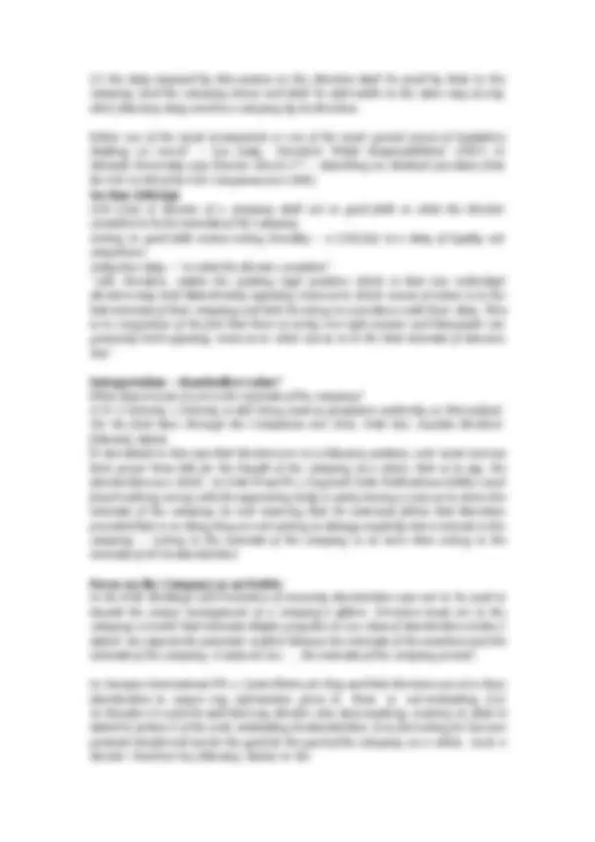
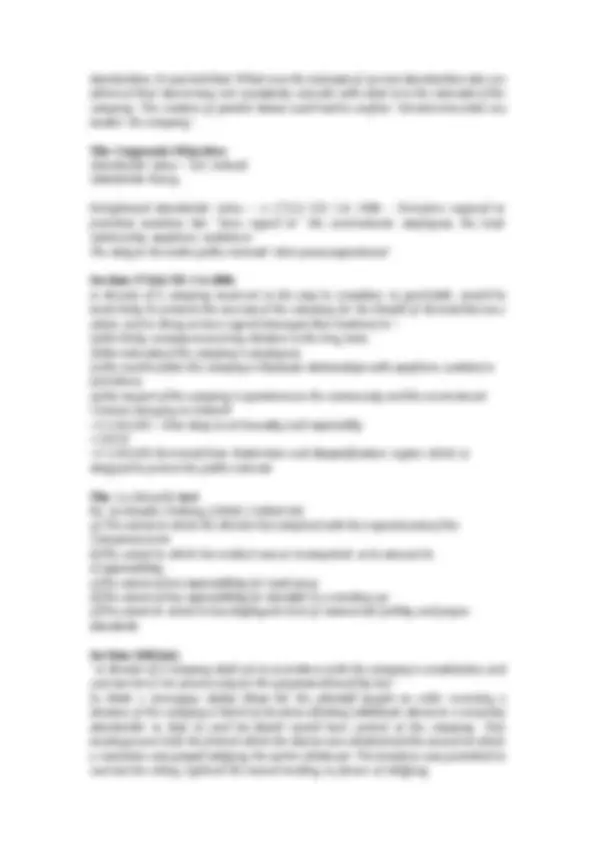
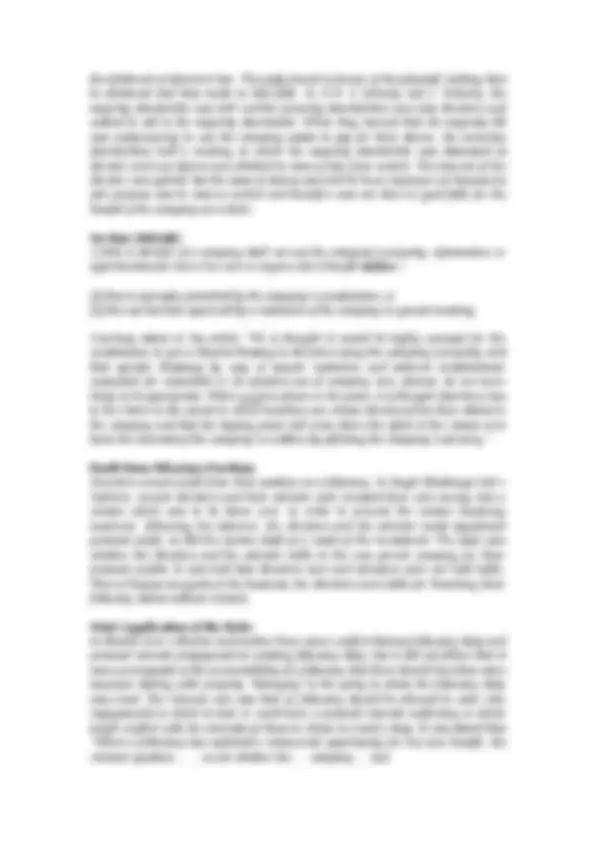
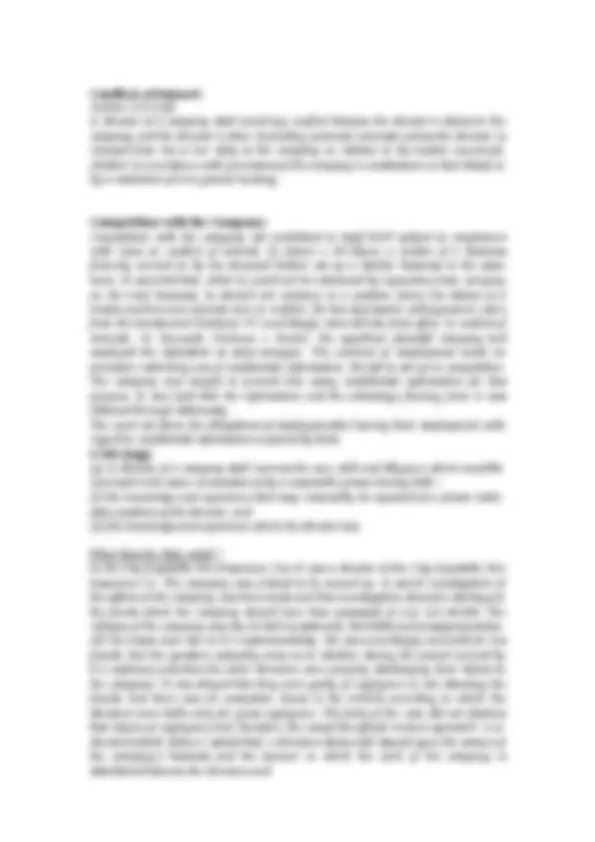
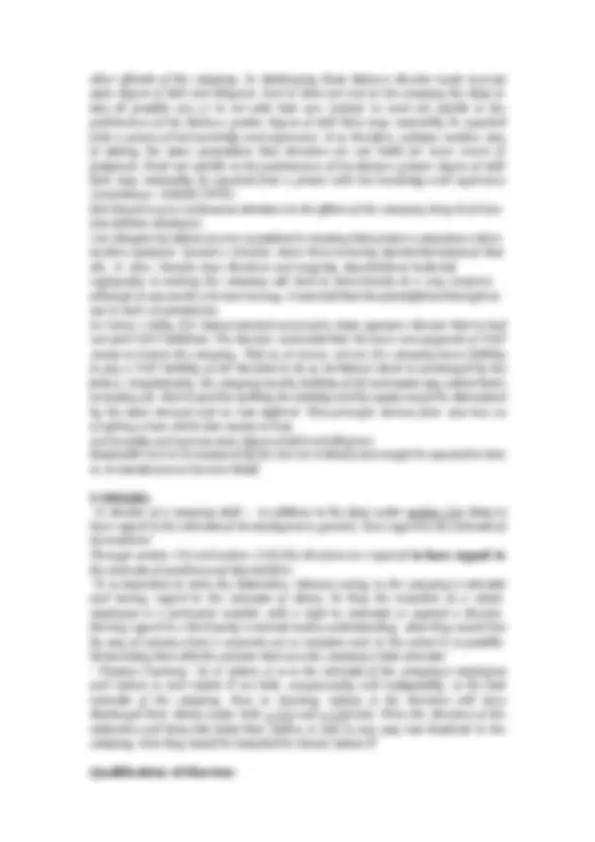
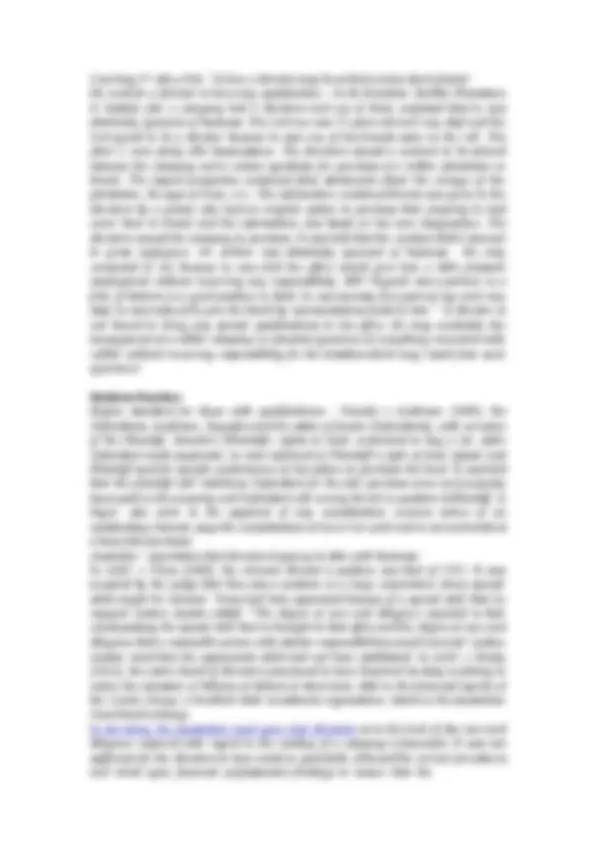
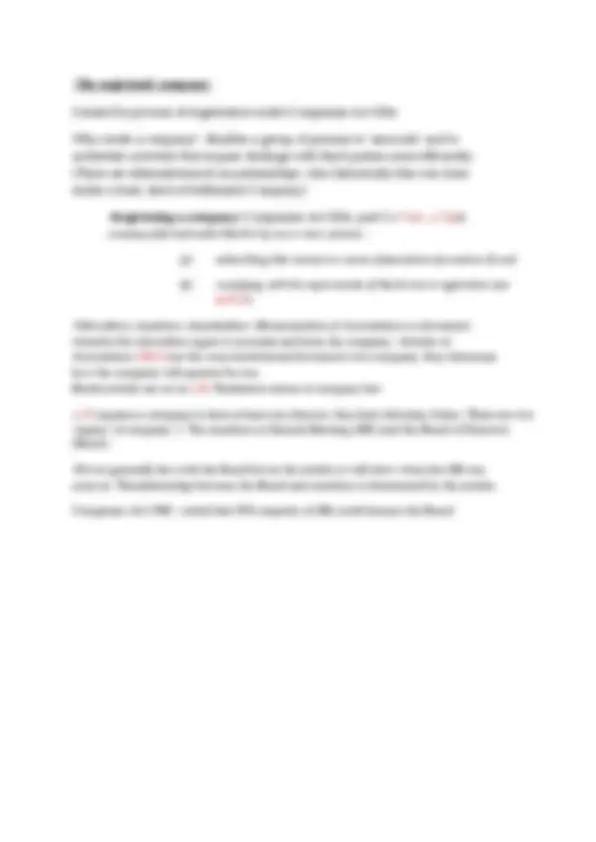
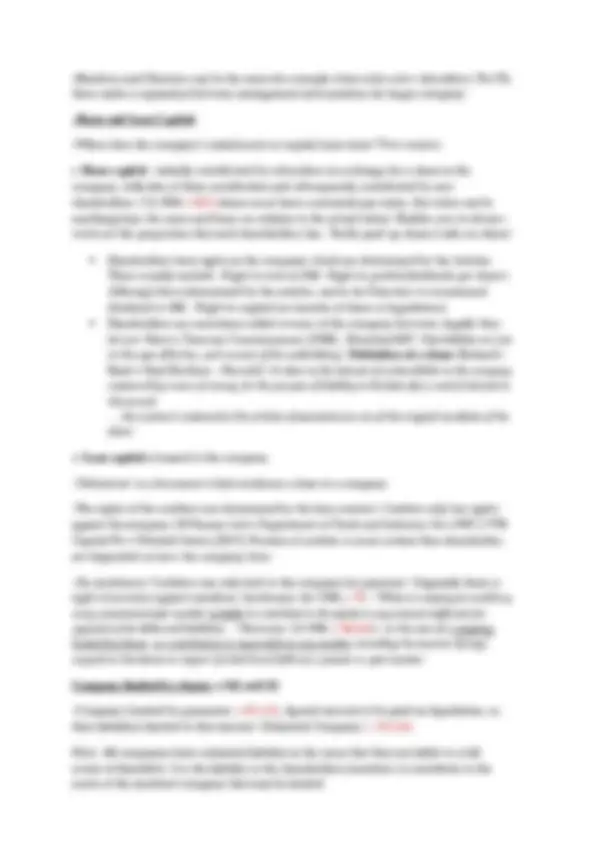
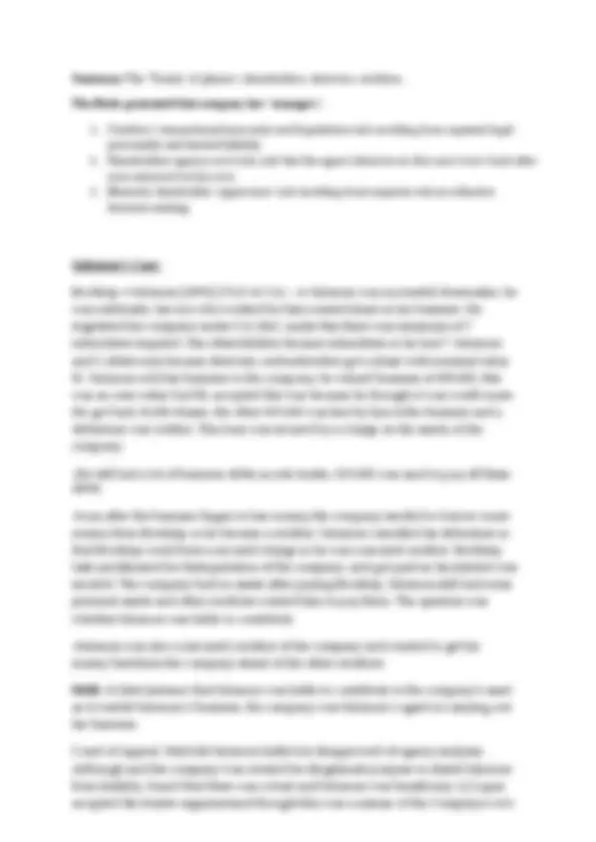



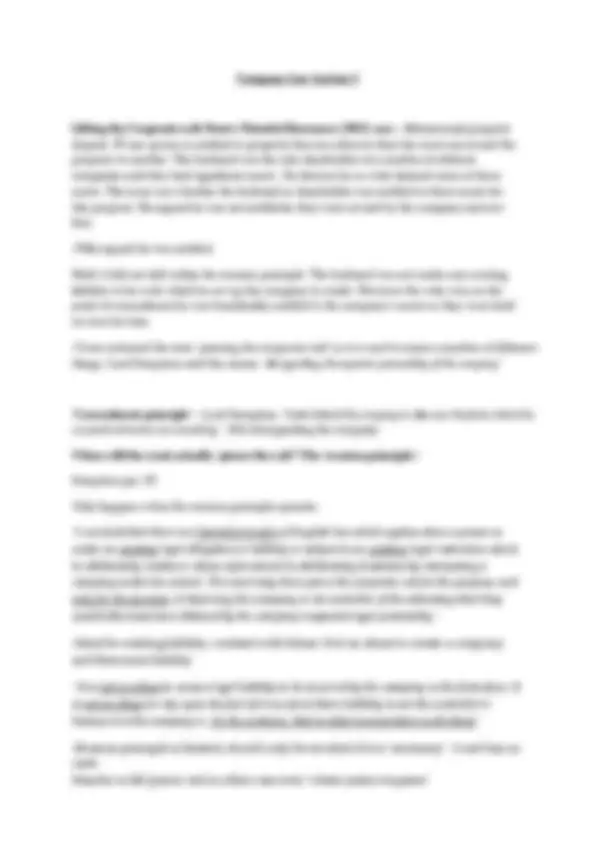
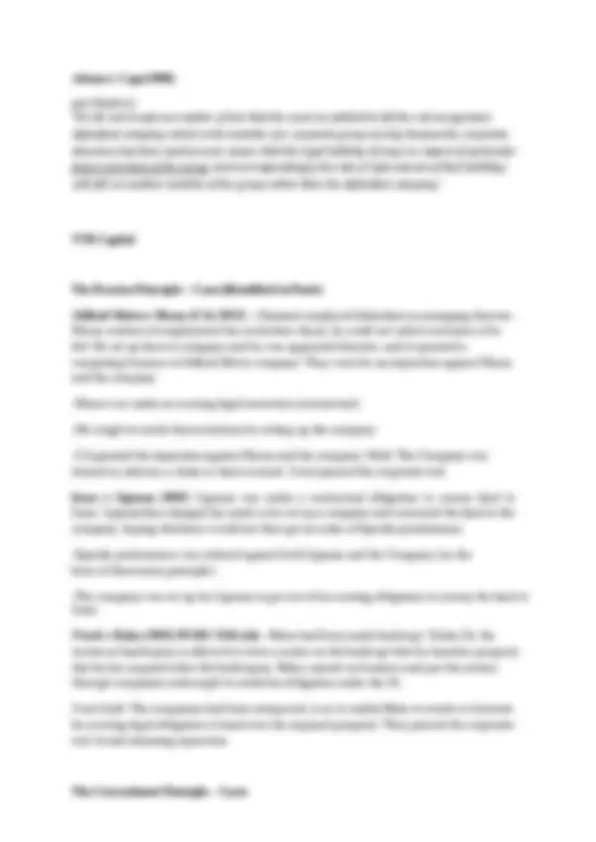

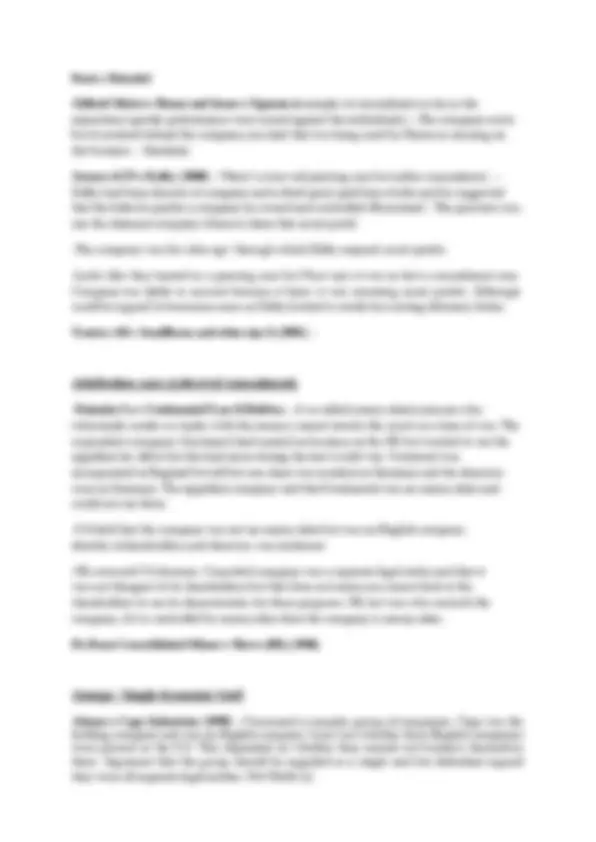
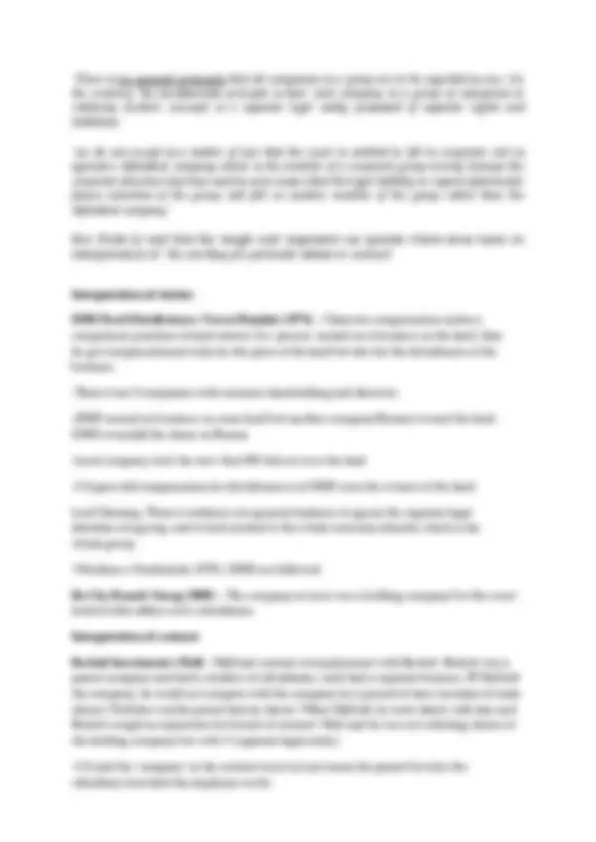

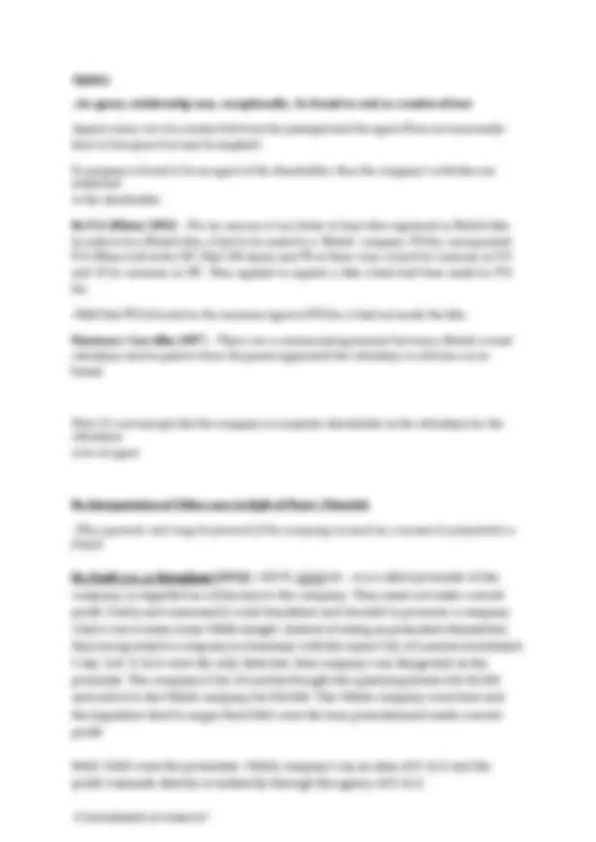



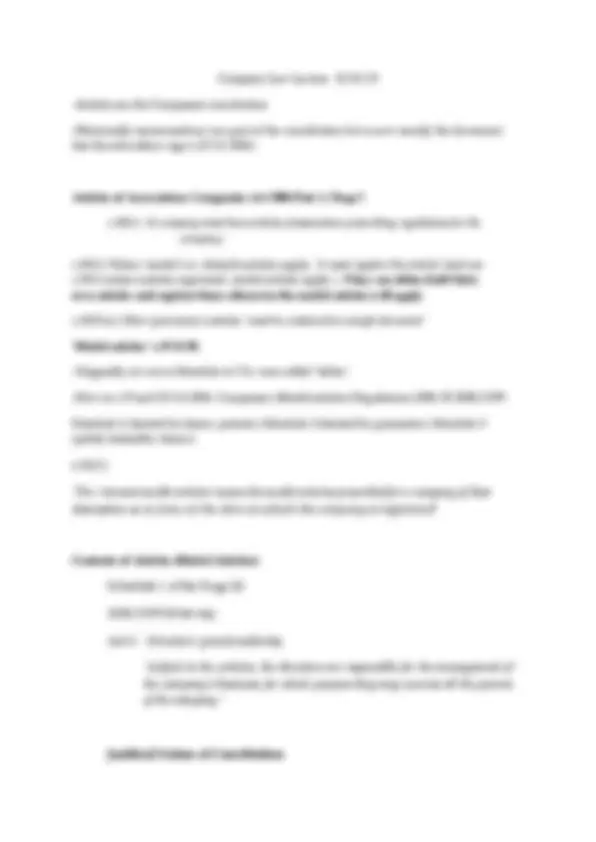
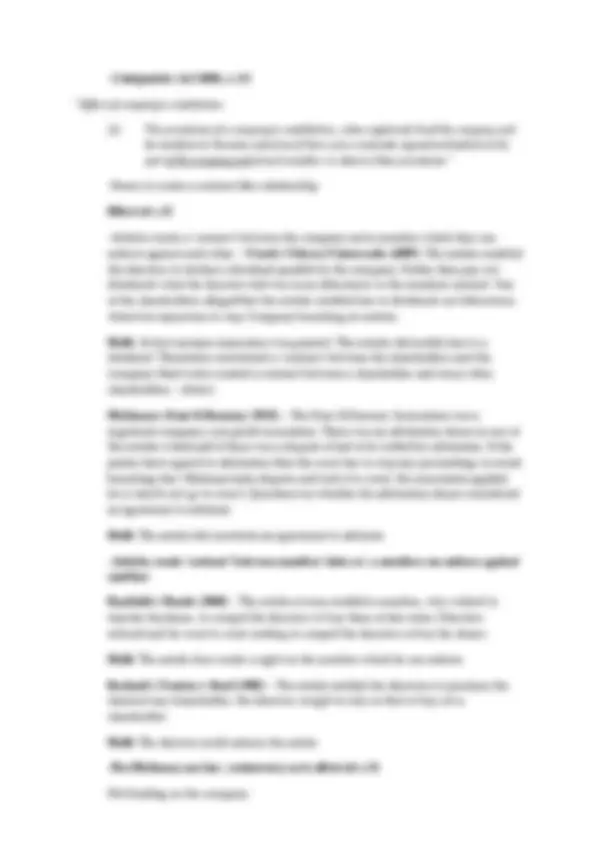

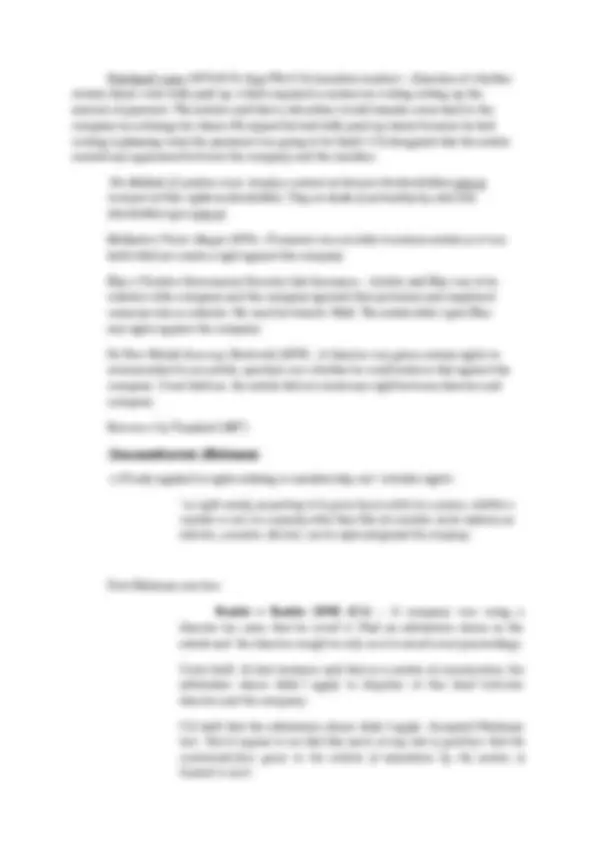


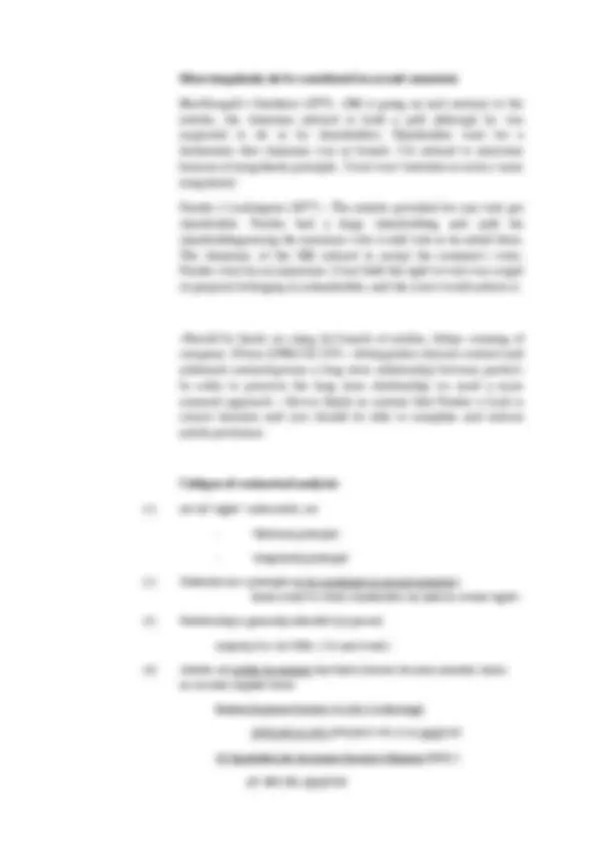

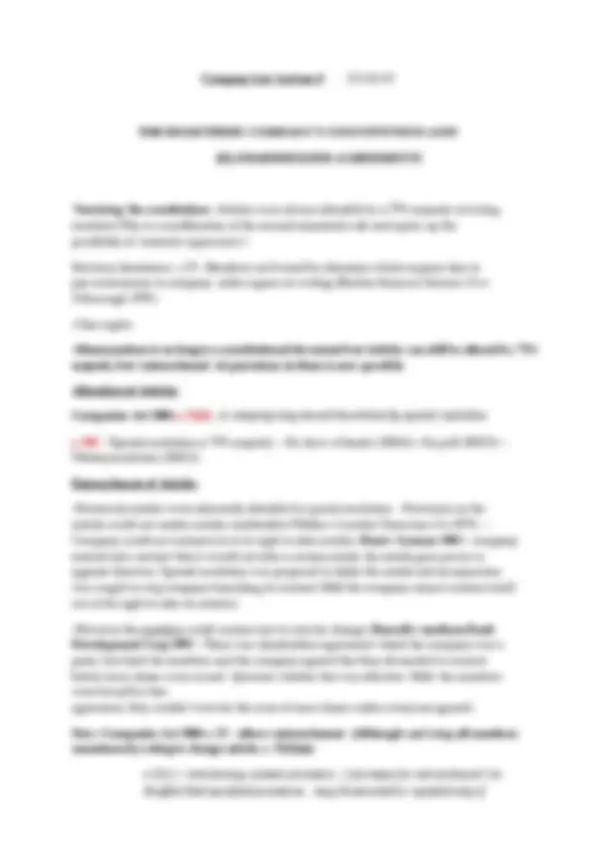
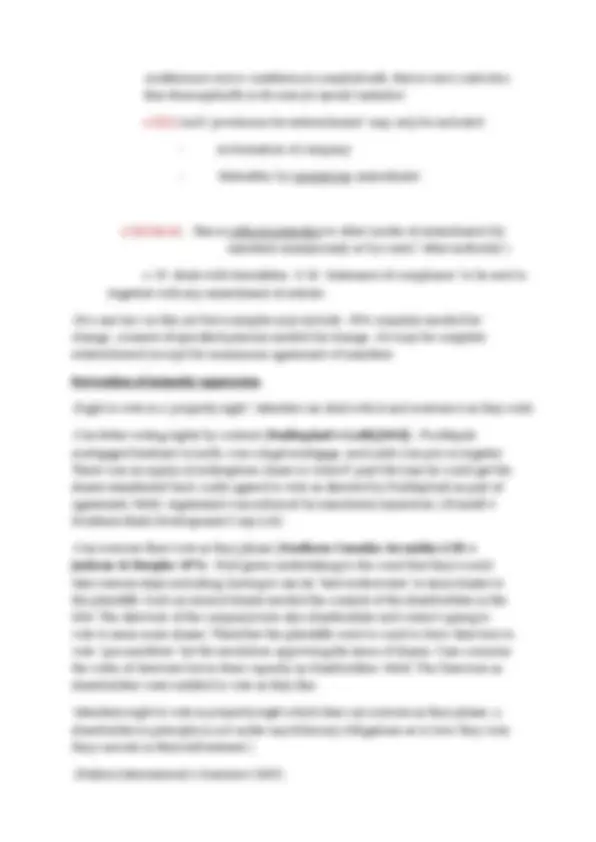

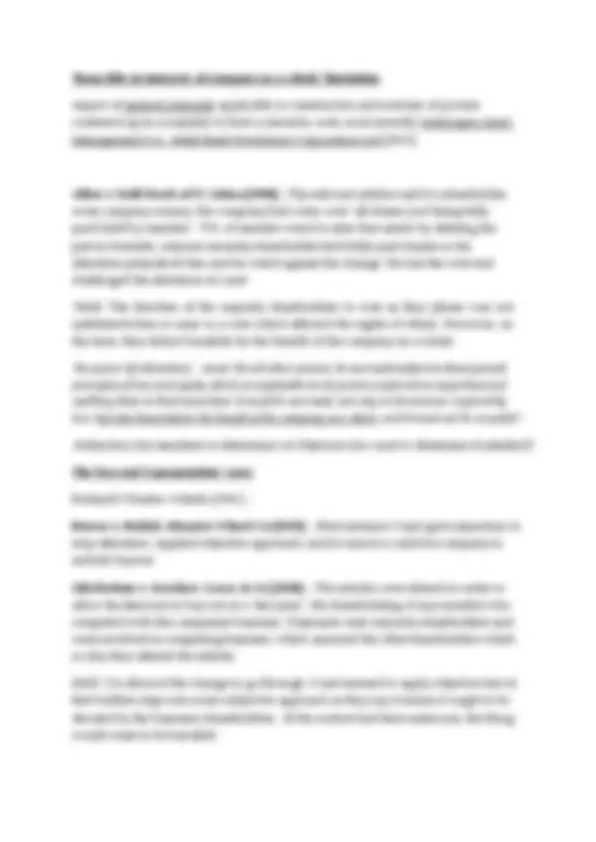
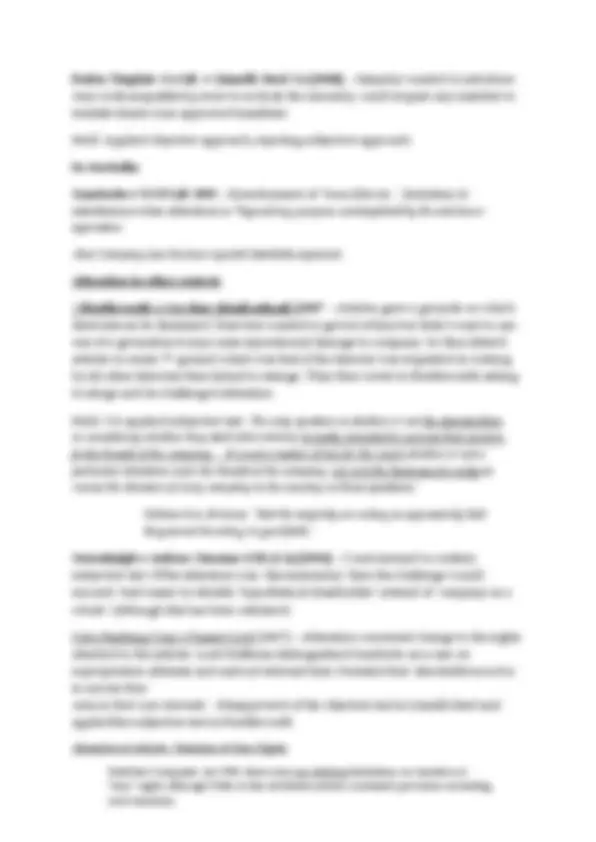

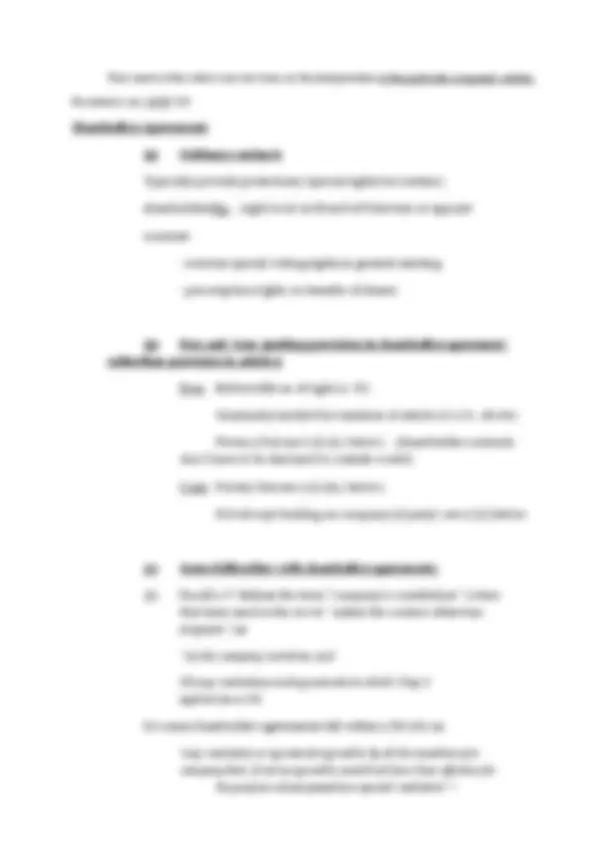
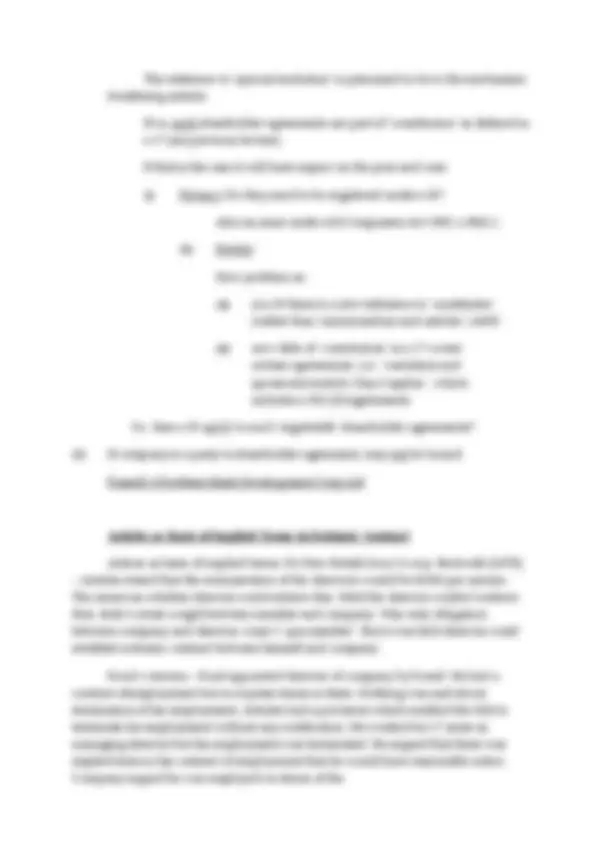

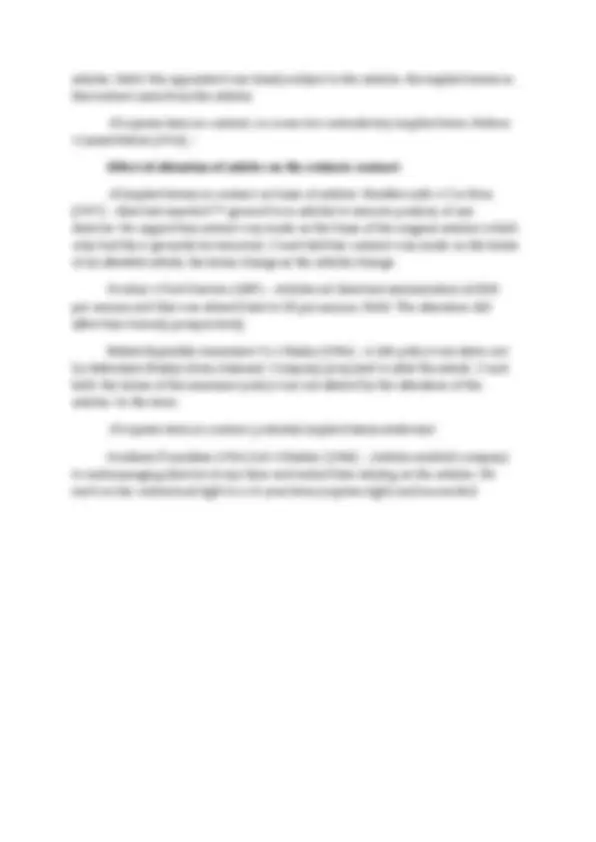
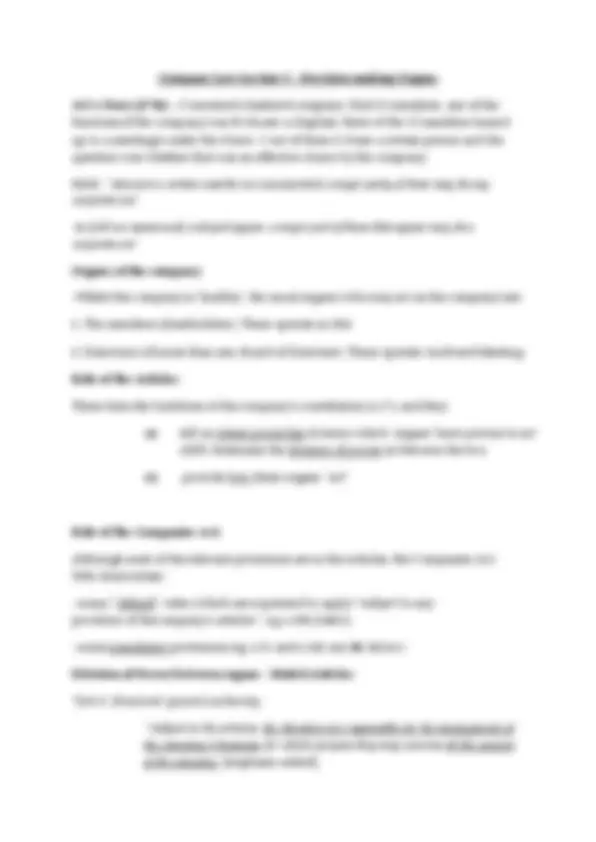
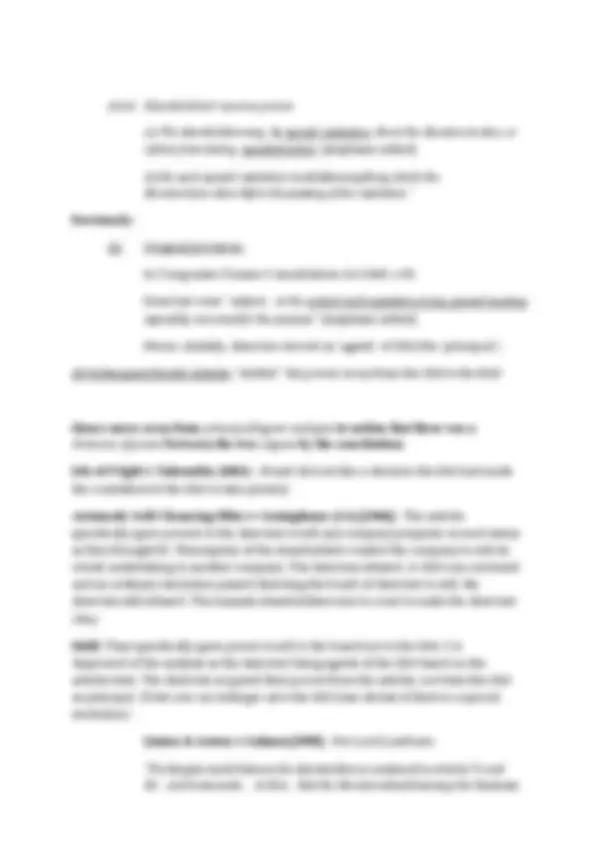
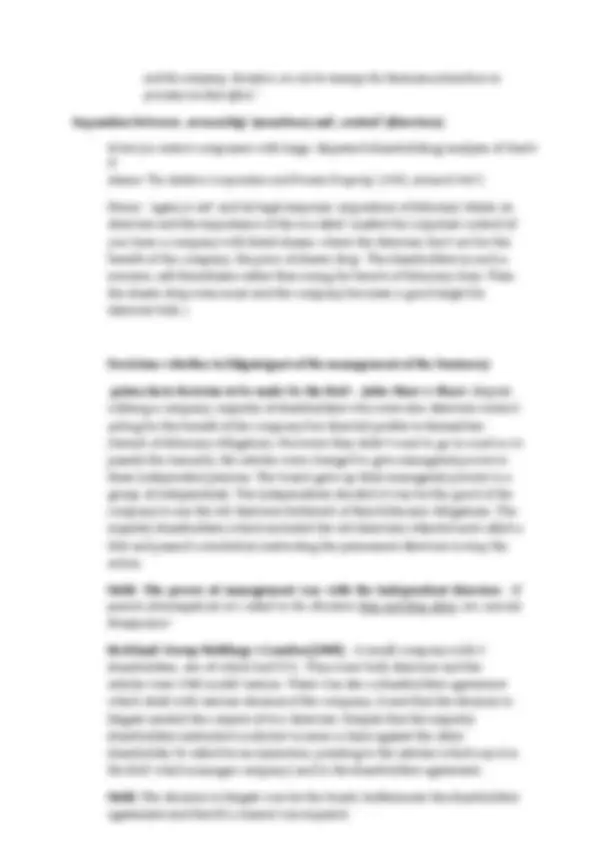

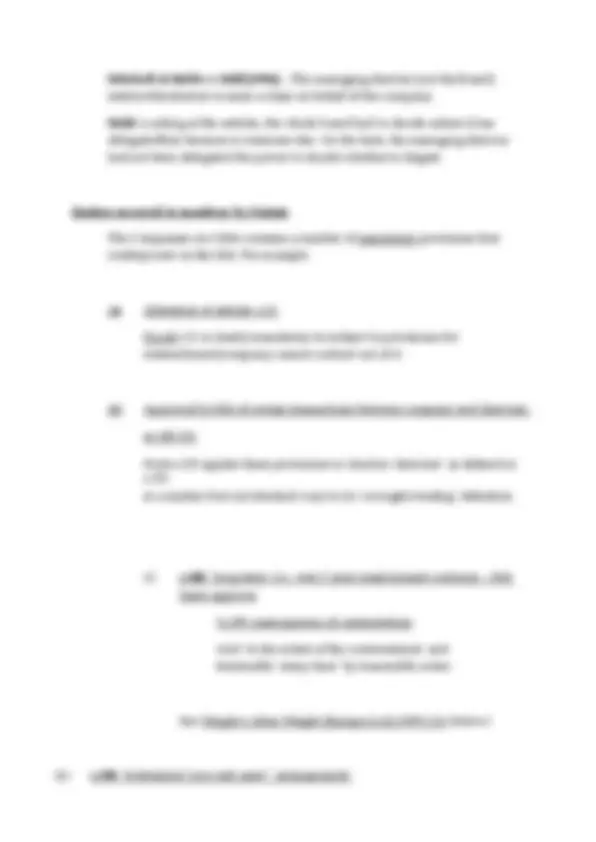
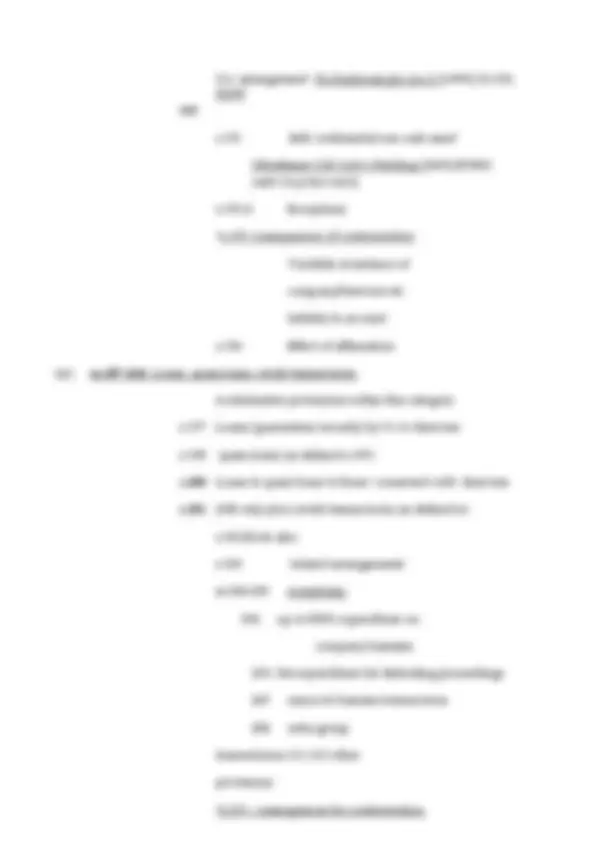

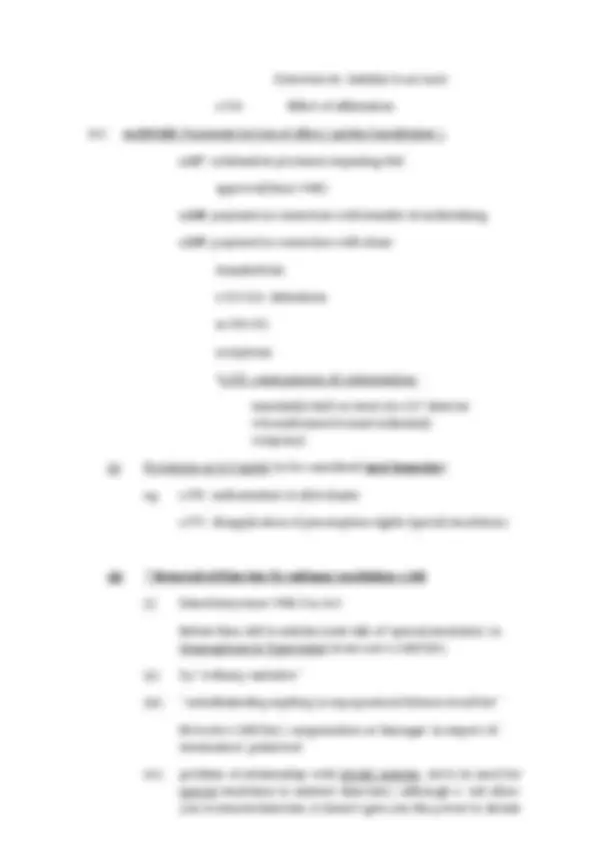

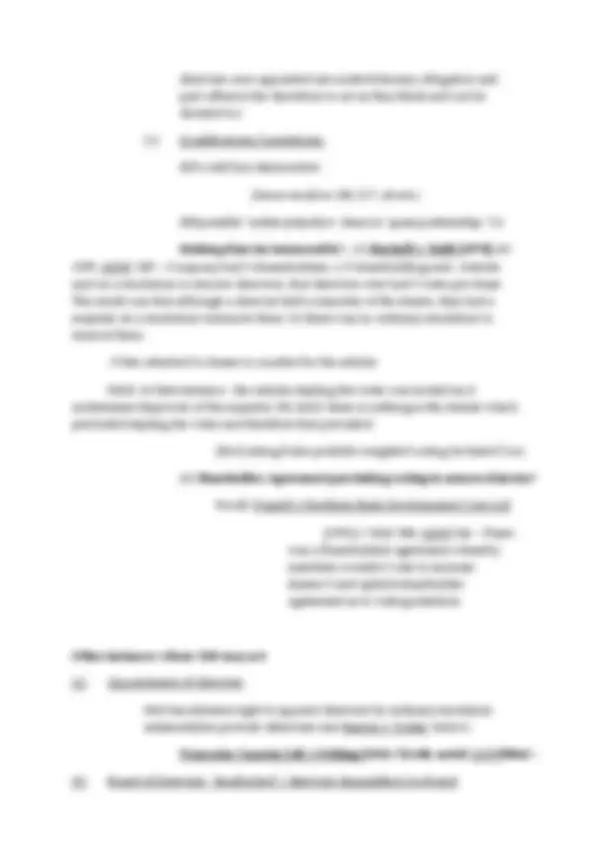

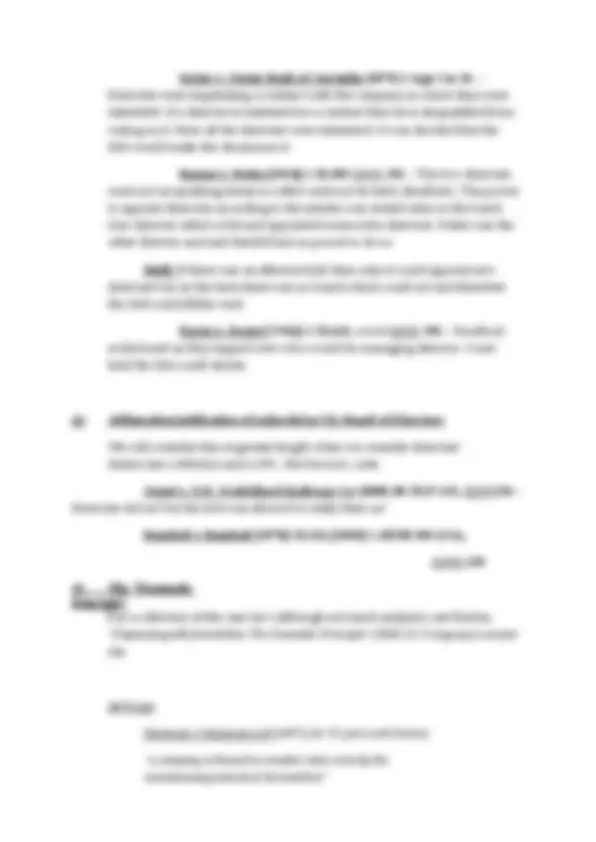
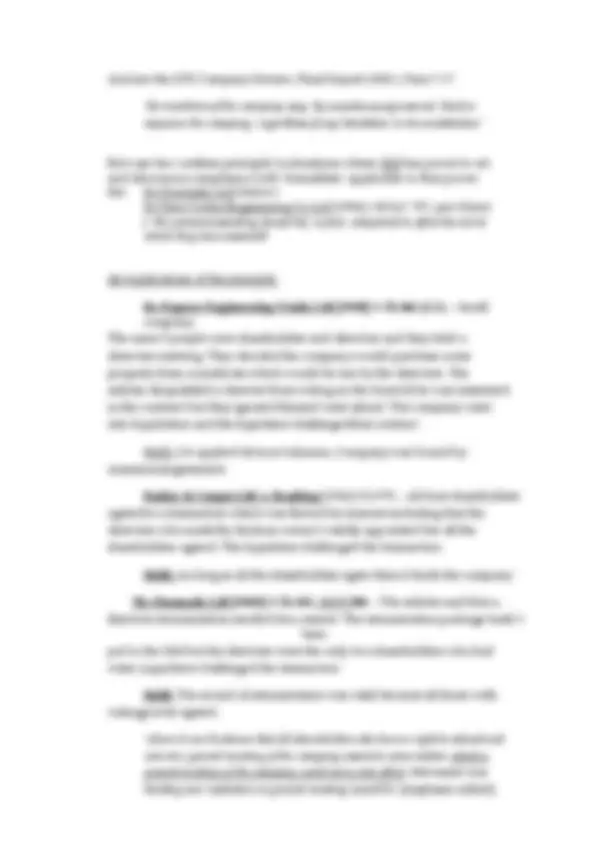

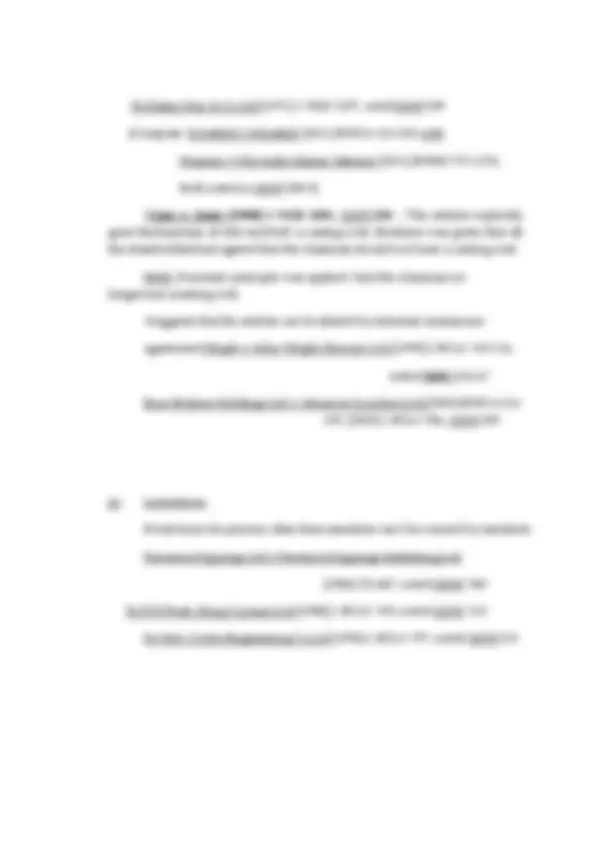
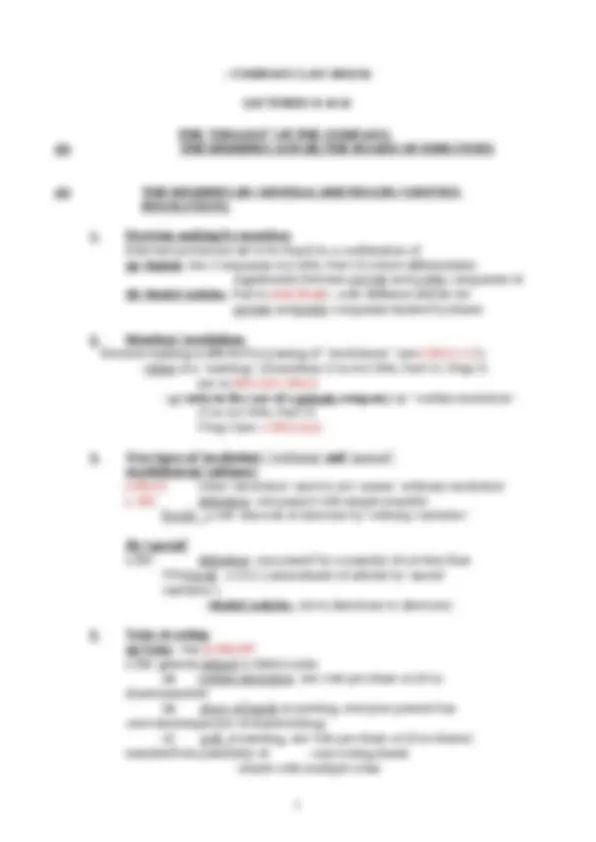

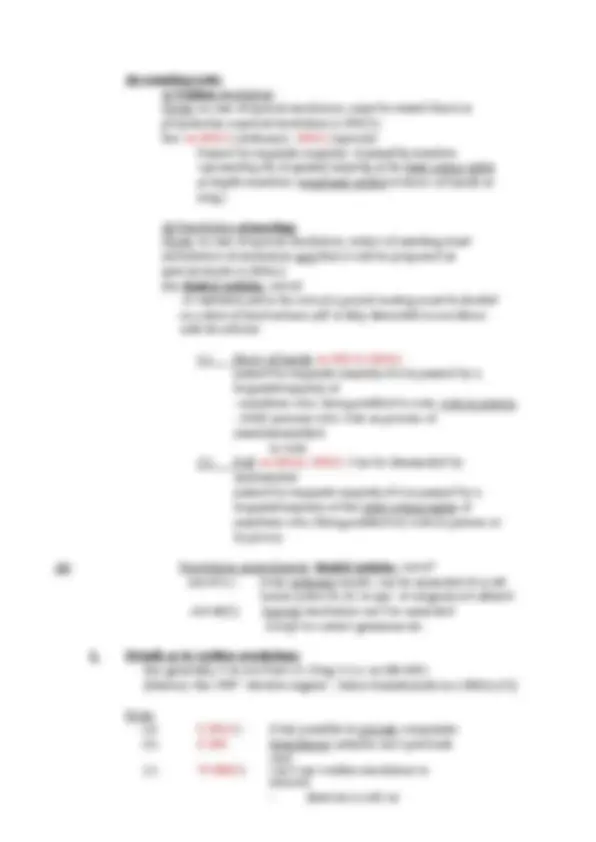

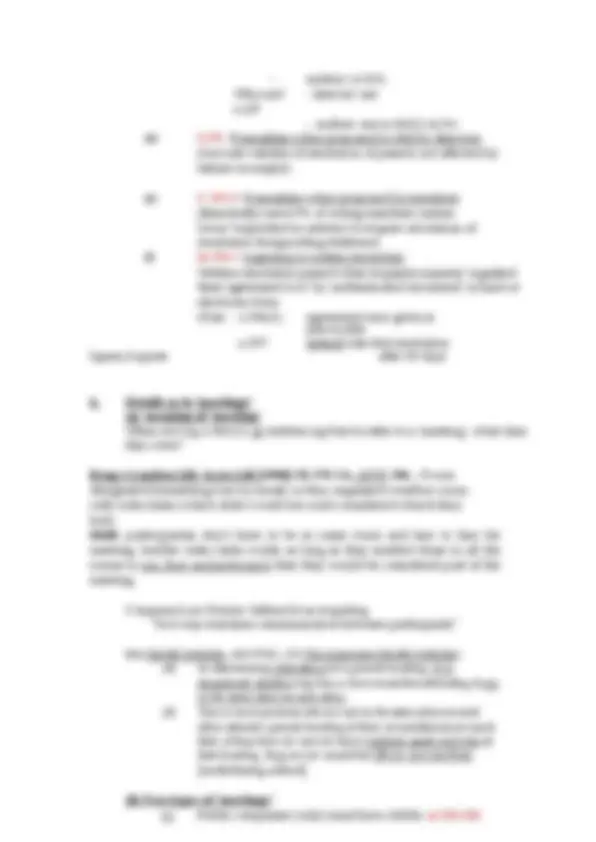

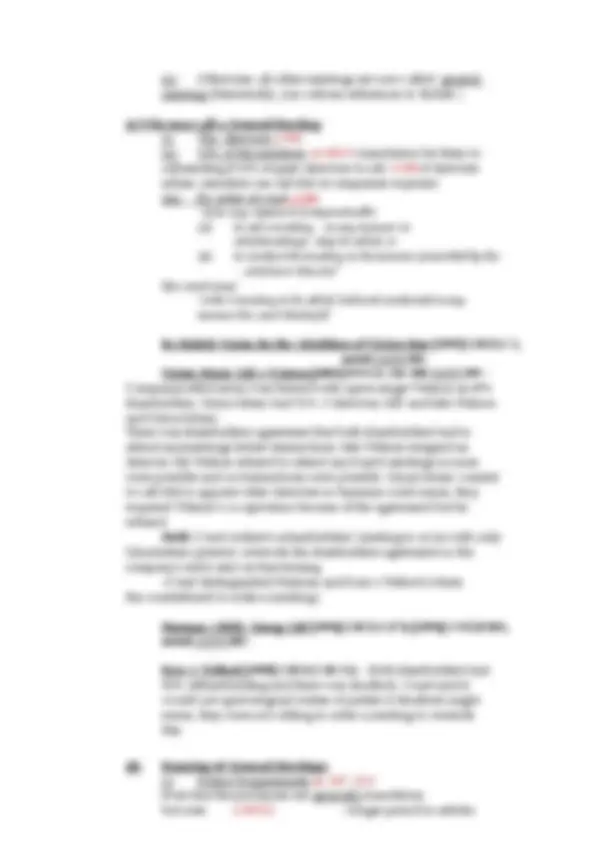

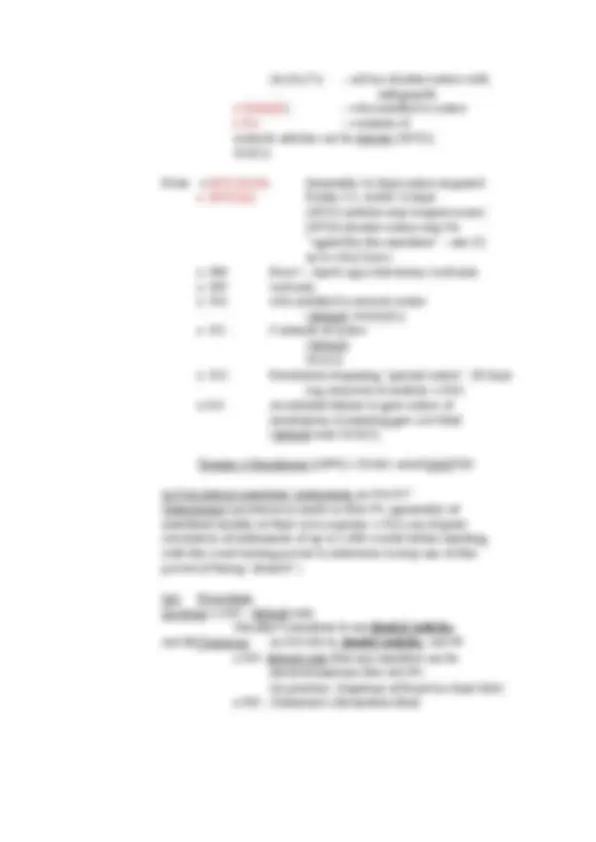

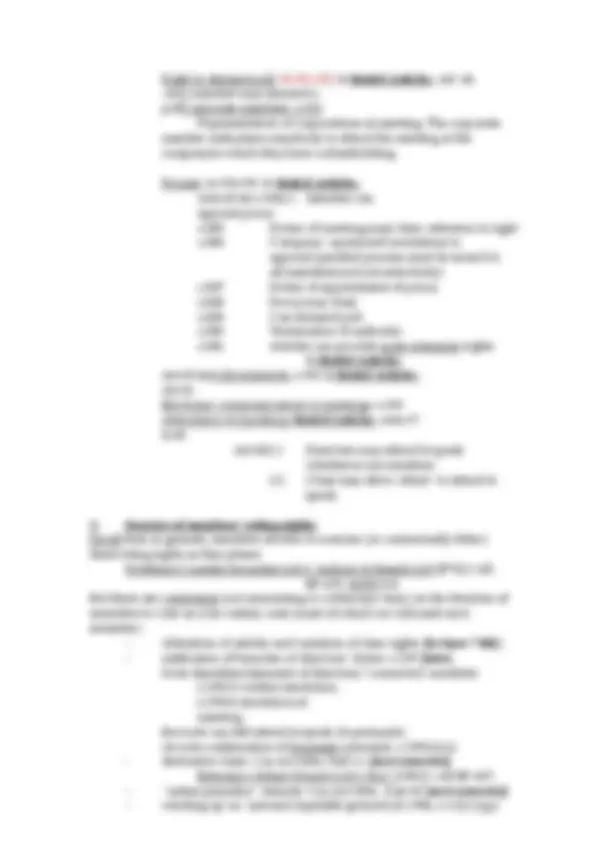


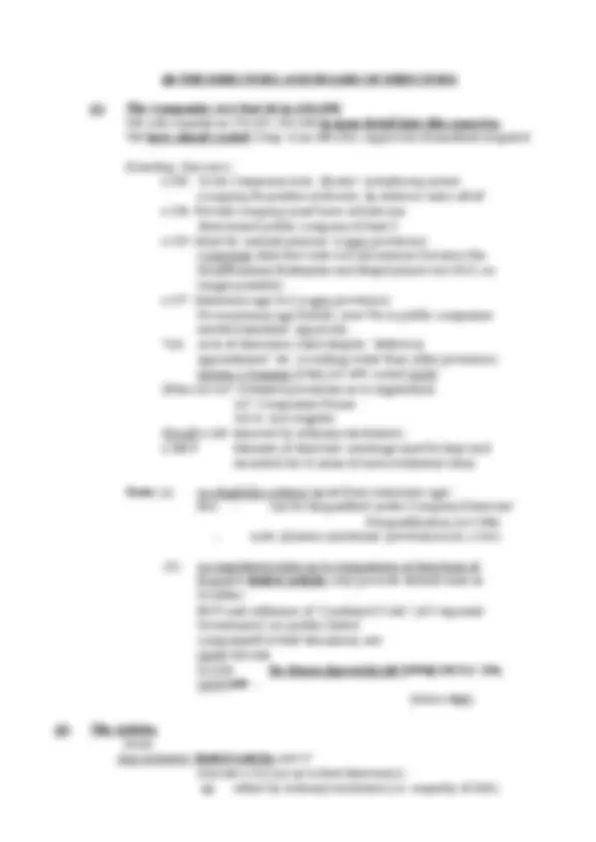


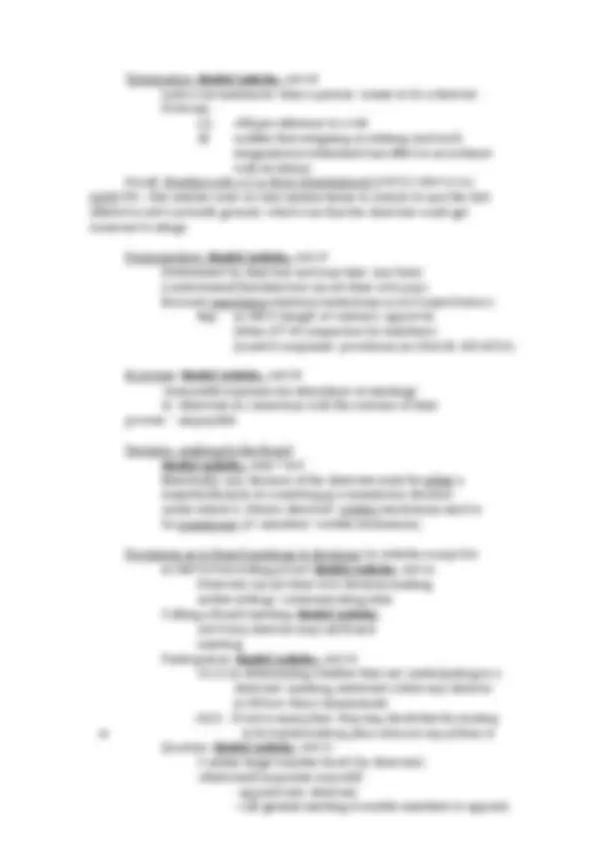



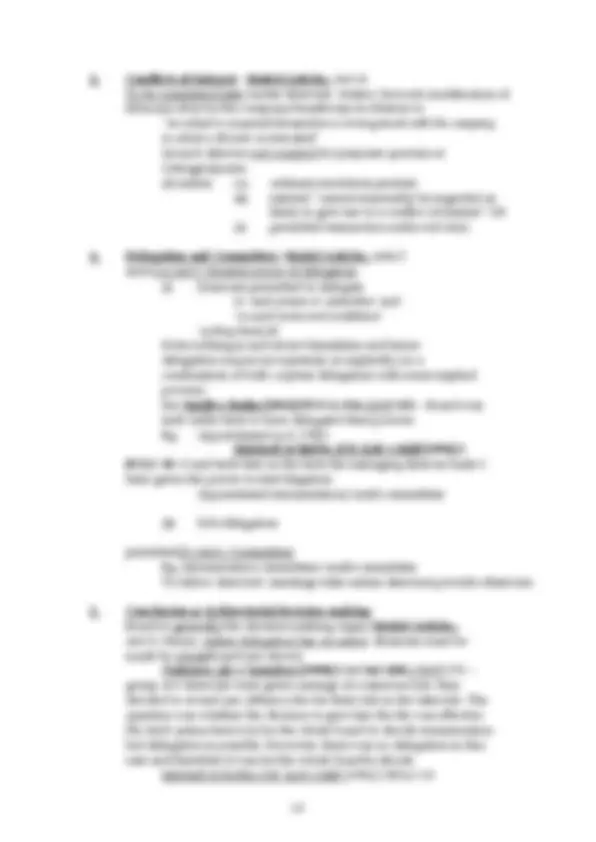

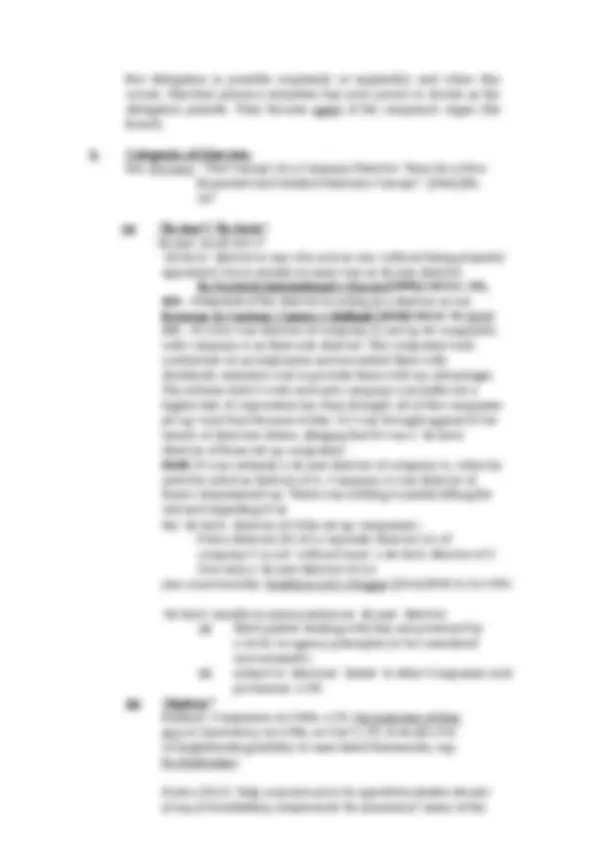

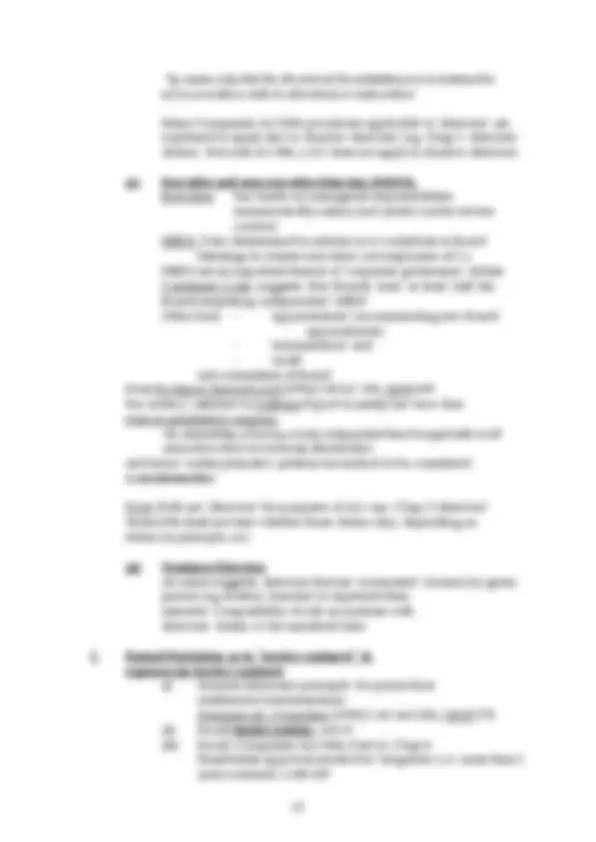
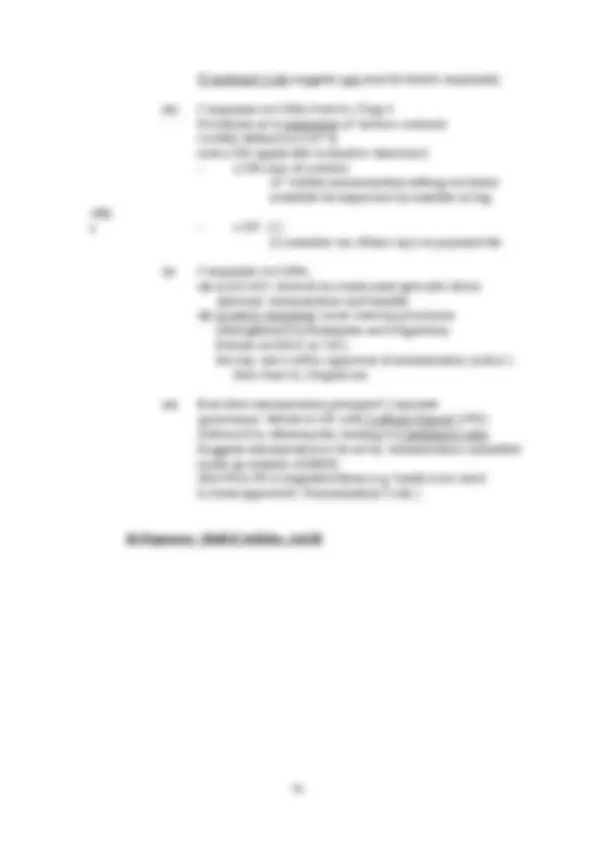
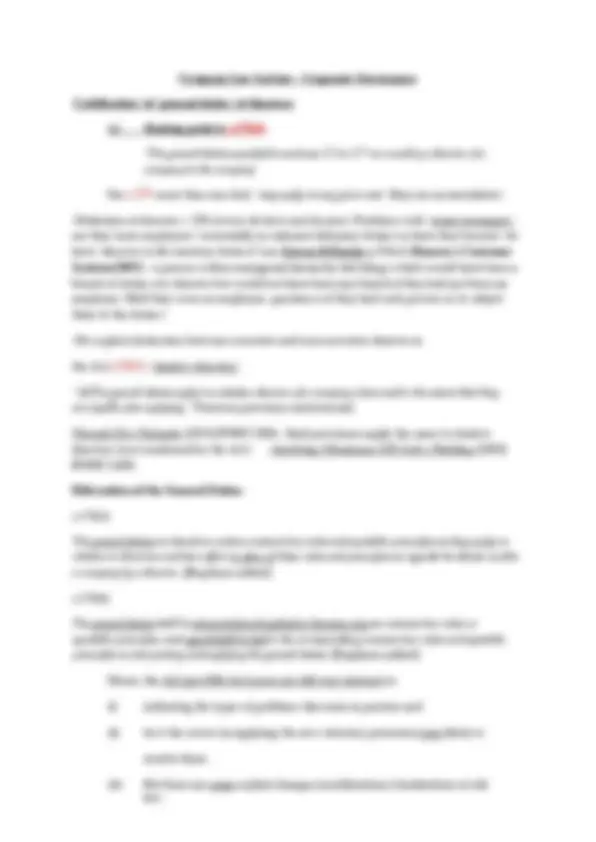

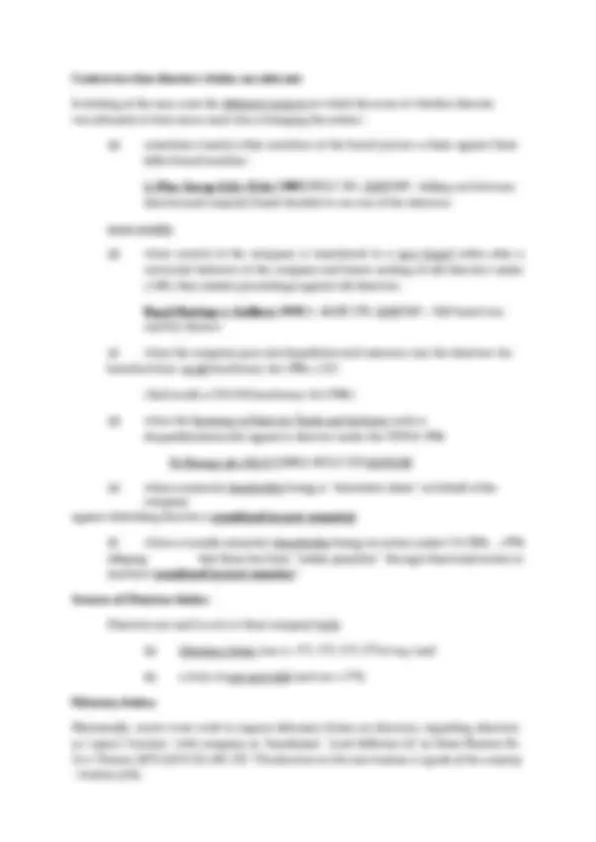
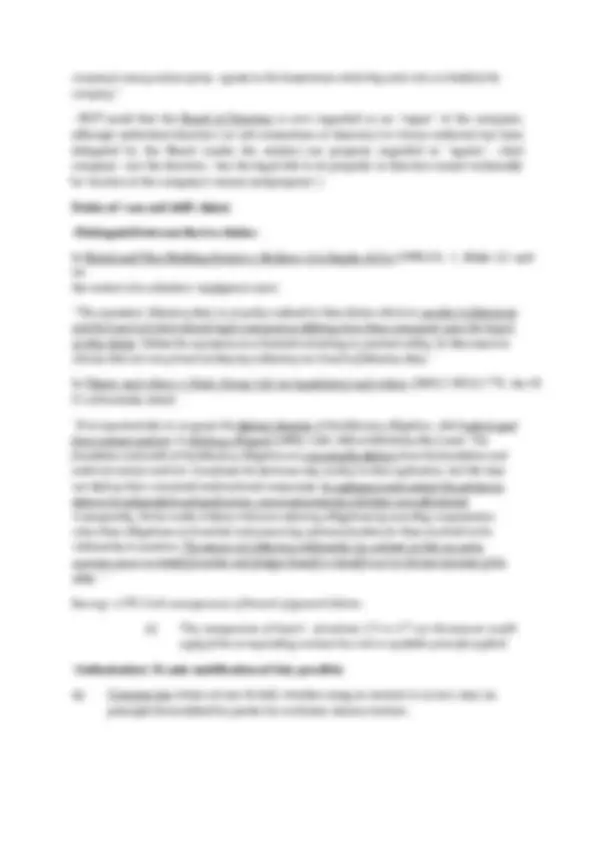
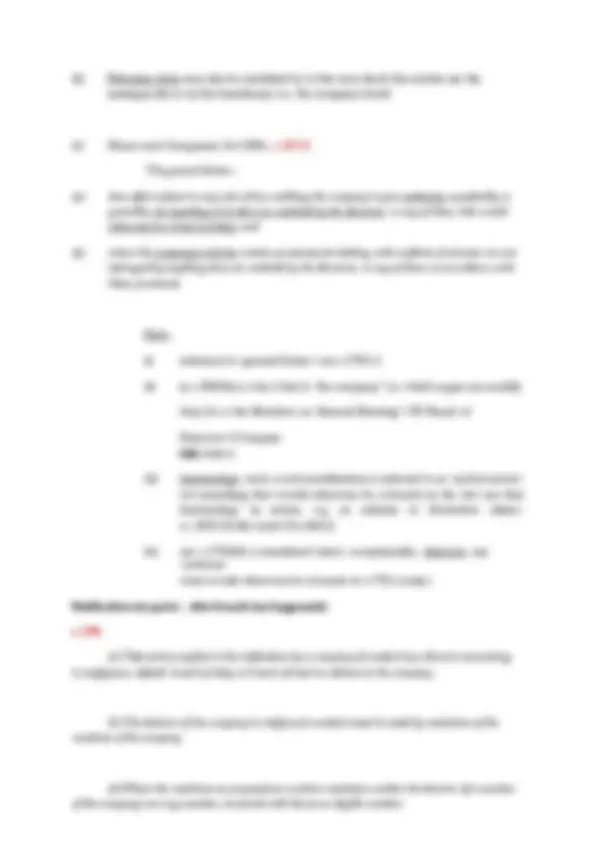
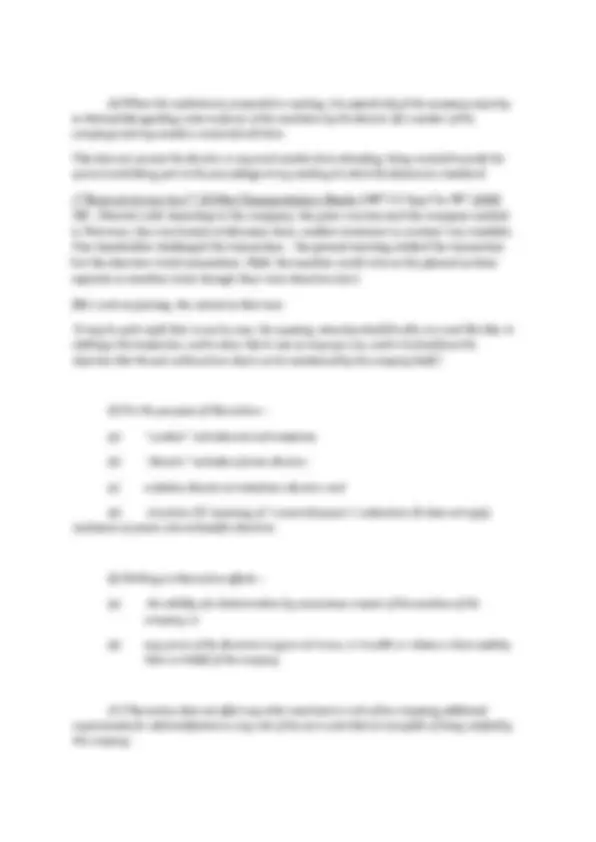
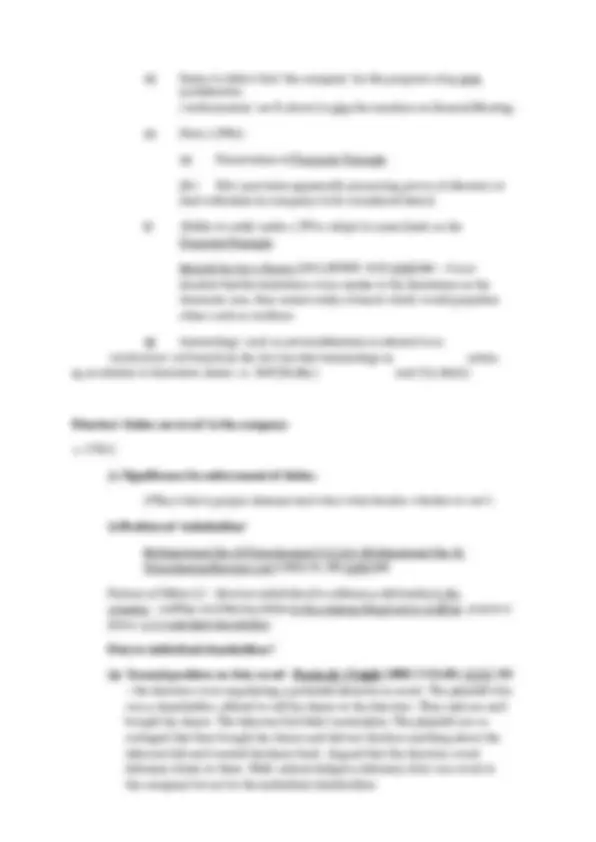
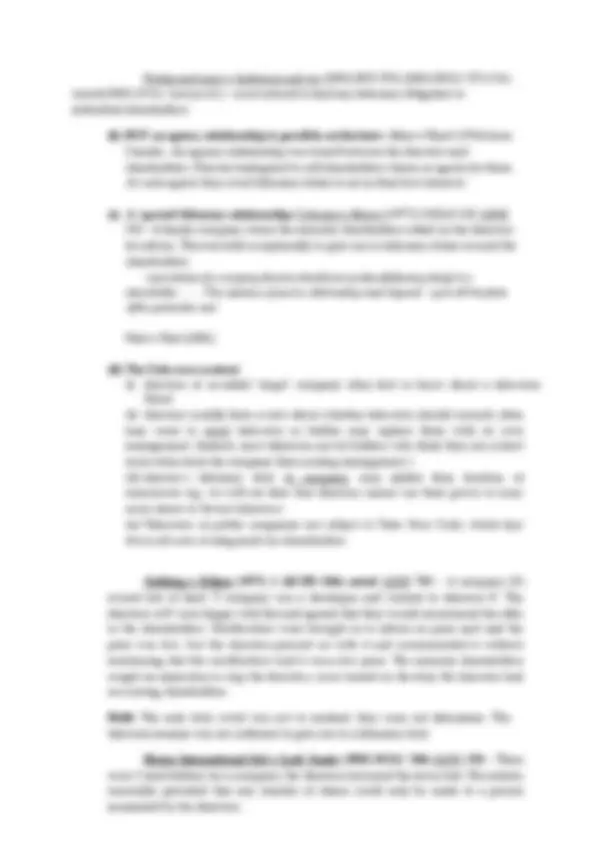
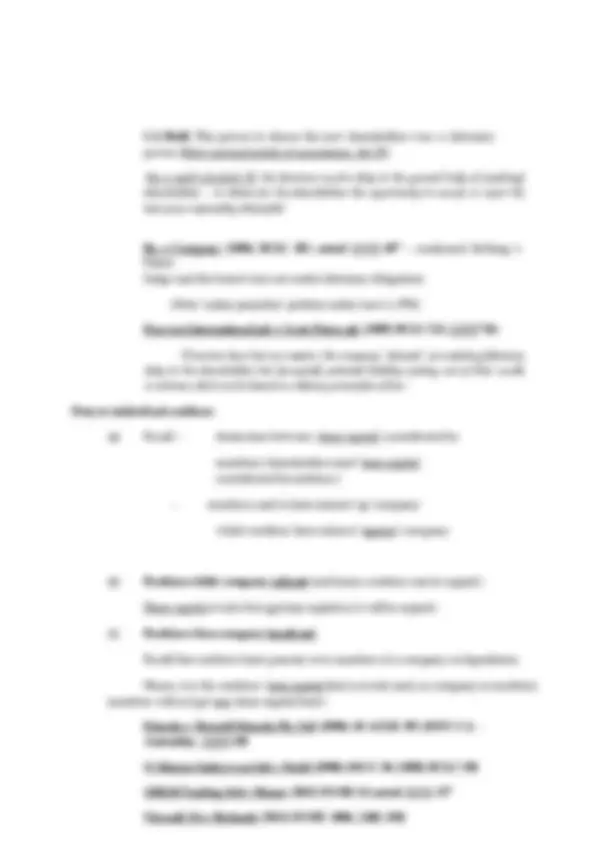
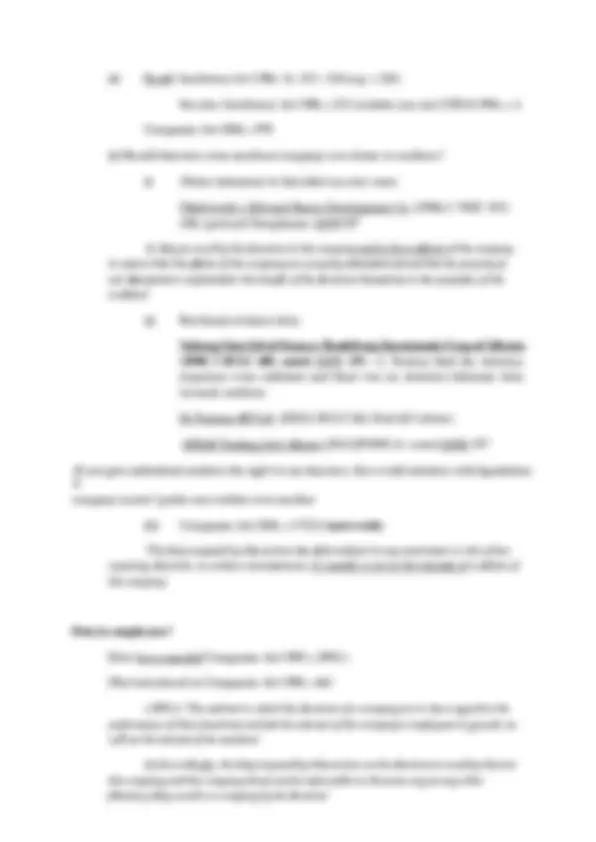



Study with the several resources on Docsity

Earn points by helping other students or get them with a premium plan


Prepare for your exams
Study with the several resources on Docsity

Earn points to download
Earn points by helping other students or get them with a premium plan
Community
Ask the community for help and clear up your study doubts
Discover the best universities in your country according to Docsity users
Free resources
Download our free guides on studying techniques, anxiety management strategies, and thesis advice from Docsity tutors
A comprehensive overview of directors' duties in company law, focusing on the legal framework in ireland. It explores the duties owed to the company, shareholders, creditors, and employees, highlighting key legal principles and case law. The document also examines the evolving nature of directors' responsibilities in light of modern corporate governance principles and the increasing emphasis on stakeholder interests.
Typology: Exams
1 / 533

This page cannot be seen from the preview
Don't miss anything!





























































































Company Law- Directors Duties Types of Director:
1. Managing Director 2. Executive and non-executive directors 3. De facto directos 4. Shadow directors 5. Alternate directors Thomas Courtney stated in his article that “one of the most far reaching reforms introduced by the Companies Act 2014 is the codification of the duties of directors” Directors Duties under Section 228 of the CA 2014: (NB) 228 (1) A director of a company shall — (a) act in good faith in what the director considers to be the interests of the company; (b) act honestly and responsibly in relation to the conduct of the affairs of the company; (c) act in accordance with the company’s constitution and exercise his or her powers only for the purposes allowed by law…… (d) not use the company’s property, information or opportunities for his or her own or anyone else’s benefit (e) not agree to restrict the director’s power to exercise an independent judgment (f) avoid any conflict between the director’s duties to the company and the director’s other (including personal) interests (g) exercise care, skill and diligence Note that the duties under s.228 are fiduciary duties. Directors owe their duties to the company as a whole and not the individual members Duties are Owed to the Company: In Dawson international plc v Coats Paton plc it was stated that there was “no good reason why it should be supposed that directors are, in general, under a fiduciary duty to the shareholders… directors have but one master, the company”. S 227 (1) CA 2014 “a director shall owe the duties set out in s228 to the company (and the company alone)” 227 (2) “The breach by a director of the relevant duties shall not of itself affect — (a) the validity of any contract or other transaction, or (b) the enforceability, other than by the director in breach of that duty, of any contract or other transaction by any person,”
S 227(2) – “but nothing in this subsection affects the principles of liability of a third party where he or she has been an accessory to a breach of duty or has knowingly received a benefit therefrom.” S 227(5) - “The relevant duties (other than those set out in section 228 (1)(b) and (h)) shall be interpreted, and the provisions concerned of section 228 shall be applied, in the same way as common law rules or equitable principles; regard shall be had to the corresponding common law rules and equitable principles in interpreting those duties and applying those provisions” Duties to Shareholders: Directors owe their duties to the company but no rule exists preventing them from also owing duties to shareholders. Directors may owe a duty to shareholders if they represent themselves as acting as agents for the shareholders – in Allan v Hyatt (1914) the directors of a company induced the shareholders to give them options for the purchase of their shares so that the directors could negotiate for the sale of the shares to another company. Instead of selling the shares directly to the other company, the directors used the options to purchase the shares themselves and then resold them to the other company. It was held that the directors had made themselves agents for the shareholders in the sale of the shares and must therefore account to them for the profit they had made on the sale. It also depends on the circumstances. Their fiduciary responsibilities are owed to the company alone. As was held in Crindle investments et al v Wymes [1998] “There can be no doubt that, in general, although directors of a company occupy a fiduciary position in relation to the company, they do not owe a fiduciary duty, merely by virtue of their offices, to the individual members. That was the effect of the decision in the leading case of Percival v. Wright [1902] 2 Ch. 421, but it has been emphasised in subsequent decisions that, in particular circumstances, a company director may indeed be in a position where he owes a fiduciary duty to individual shareholders” Duties to Creditors: Directors of insolvent companies owe duties to creditors to preserve the assets until the company is properly wound up – The case of Re Frederick Inns Ltd is a good example of where the interests of creditors may intrude on the duties of directors. In this case the directors made payments to the Revenue Commissioners not only for the company’s debt but also for the debts of other companies within the group. The court held that such a payment was in breach of the directors’ duties to the general creditors of these insolvent companies and the directors incurred personal liability accordingly. Also a duty owed to creditors when the company is “approaching insolvency” Duties to Employees: Section 224 CA 2014 Employees: No duty at common law – S 224. (1) The matters to which the directors of a company are to have regard in the performance of their functions shall include the interests of the company's employees in general, as well as the interests of its members.
shareholders. It was held that ‘What is in the interests of current shareholders who are sellers of their shares may not necessarily coincide with what is in the interests of the company. The creation of parallel duties could lead to conflict. Directors have but one master, the company’. The Corporate Objective: Shareholder value – US, Ireland Stakeholder theory Enlightened shareholder value – s 172(1) UK CA 2006 - Directors required to prioritise members but “have regard to” the environment, employees, the local community, suppliers, customers The duty to the wider public interest? Mere pious aspirations? Section 172(1) UK CA 2006 A director of a company must act in the way he considers, in good faith, would be most likely to promote the success of the company for the benefit of its members as a whole, and in doing so have regard (amongst other matters) to — (a)the likely consequences of any decision in the long term, (b)the interests of the company's employees, (c) the need to foster the company's business relationships with suppliers, customers and others, (d) the impact of the company's operations on the community and the environment Context changing in Ireland?
- S 228(1)(b) – New duty to act honestly and responsibly - ODCE - S 228(1)(b) Borrowed from Restriction and disqualification regime which is designed to protect the public interest The La Moselle test Re: La Moselle Clothing [1998] 2 ILRM 345 a) The extent to which the director has complied with the requirements of the Companies Acts b) The extent to which his conduct was so incompetent as to amount to irresponsibility c) The extent of his responsibility for insolvency d) The extent of his responsibility for shortfall in a winding up e) The extent to which he has displayed a lack of commercial probity and proper standards Section 228(1)(c) “A director of a company shall act in accordance with the company’s constitution and exercise his or her powers only for the purposes allowed by law” In Nash v Lancegaye Safety Glass ltd, the plaintiff sought an order reversing a decision of the company’s board of firectors allotting additional shares to a minority shareholder so that he and his familt would have control of the company. Two meetings were held; the first at which the shares were allotted and the second at which a resolution was passed ratifying the earlier allotment. The tranferee was permitted to exercise his voting rights at the second meeting in favour of ratifying
the allotment of shares to him. The judge found in favour of the plaintiff, holding that he allotment had been made in bad faith. In G & S Doherty Ltd v. Doherty, the majority shareholder was MD and the minority shareholders were also directors and wished to sell to the majority shareholder. When they learned that the majority SH was endeavouring to use the company assets to pay for their shares, the minority shareholders held a meeting at which the majority shareholder was dismissed as director and new shares were allotted to remove him from control. The removal of the director was upheld, but the issue of shares was held th be an improper act because its sole purpose was to remove control and therefore was not done in good faith for the benefit of the company as a whole. Section 228(1)(d) 228(d) A director of a company shall not use the company's property, information or opportunities for his or her own or anyone else's benefit unless — (i) this is expressly permitted by the company's constitution; or (ii) the use has been approved by a resolution of the company in general meeting; Courtney states in his article “•It is thought it would be highly unusual for the constitution to give a blanket blessing to directors using the company’s property and that specific blessings by way of special resolution and tailored constitutional exemption for reasonable or de minimis use of company cars, phones, etc are more likely to be appropriate. While s 228 is silent on the point, it is thought that there has to be a limit on the extent to which members can release directors from their duties to the company and that the tipping point will arise where the effect of the release is to harm the interests of the company’s creditors by affecting the company’s solvency.” Profit from Fiduciary Position: Directors cannot profit from their position as a fiduciary. In Regal (Hastings) Ltd v Gulliver, several directors and their solicitor each invested their own money into a cinema which was to be taken over, in order to prevent the cinema becoming insolvent. Following the takeover, the directors and the solicitor made significant personal profit, as did the cinema itself as a result of the investment. The issue was whether the directors and the solicitor liable to the new parent company for their personal profits. It was held that directors were and solicitors were not held liable. This is because as agents of the business, the directors were liable for breaching their fiduciary duties without consent. Strict Application of the Rule: In Bhullar et al v Bhullar and another there was a conflict between fiduciary duty and personal interest presupposed an existing fiduciary duty, but it did not follow that it was a prerequisite of the accountability of a fiduciary that there should have been some improper dealing with property 'belonging' to the party to whom the fiduciary duty was owed. The relevant rule was that no fiduciary should be allowed to enter into engagements in which he had, or could have, a personal interest conflicting or which might conflict with the interests of those to whom he owed a duty. It was stated that “Where a fiduciary has exploited a commercial opportunity for his own benefit, the relevant question, … , is not whether the … company … has
A director of a company shall not agree to restrict the director's power to exercise an independent judgment unless — (i) this is expressly permitted by the company's constitution; (ii) the case concerned falls within subsection (2); or (iii) the director's agreeing to such has been approved by a resolution of the company in general meeting; Exercise of independent discretion: In Boulting v Association of Cinematograph, Television and Allied Technicians, two managing directors of a film company applied for a declaration that while they were performing 'management functions' (e.g. producing and directing) they were not eligible for membership of the trade union (the ACTAT). Until 1950 they had been union members, but then they tore up their cards and paid no further subscriptions. In 1959 the union claimed that they needed to pay up to date for their membership fees, and said they must be members of the union. At this time, like many unions, there was a closed shop agreement. Rule 7 of the union's rules said that "The association shall consist of all employees engaged on the technical side of film production... including film directors." They also wanted an injunction restraining the union from making them join. A majority Court of Appeal held that there was no principle which prevented every employee from becoming union members, stating “It seems to me that no one, who has duties of a fiduciary nature to discharge, can be allowed to enter into an engagement by which he binds himself to disregard those duties or to act inconsistently with them. No stipulation is lawful by which he agrees to carry out his duties in accordance with the instructions of another rather than on his own conscientious judgment; or by which he agrees to subordinate the interests of those whom he must protect to the interests of someone else.” Exercising/Fettering of discretion: Directors duties are positive in nature Directors never allowed to fetter their discretion – In Clarke v. Workman it was stated that it constitutes a contract between every shareholder and all the others, and between the company itself and all the shareholders. It is a contract of the most sacred character, and it is on the faith of it that each shareholder advances his money. Change in position in UK in Fulham Football Club Ltd v Cabra Estates plc, the directors signed an agreement to develop the football ground and gave an undertaking that Fulham Football Club Ltd would not oppose the development at a later date or support a compulsory purchase order. It was held that the directors had not improperly restricted the future exercise of their discretion. – can fetter discretion if it is in the best interests of the company Section 228(2): If a director of a company considers in good faith that it is in the interests of the company for a transaction or engagement to be entered into and carried into effect, a director may restrict the director's power to exercise an independent judgment in the future by agreeing to act in a particular way to achieve this.
Conflicts of Interest: Section 228 (1)(f) A director of a company shall avoid any conflict between the director's duties to the company and the director's other (including personal) interests unless the director is released from his or her duty to the company in relation to the matter concerned, whether in accordance with provisions of the company's constitution in that behalf or by a resolution of it in general meeting; Competition with the Company: Competition with the company not prohibited in itself BUT subject to compliance with rules on conflict of interest. In Moore v M’Glynn, a trustee of a business formerly carried on by his deceased brother set up a similar business in the same town. It was held that, while he could not be restrained by injunction from carrying on the rival business, he should not continue in a position where his duties as a trustee and his own interest were in conflict. He has expressed a willingness to retire from the truests and Chatteron VC accordingly removed him from office. (a conflict of interest). In Faccenda Chickens v Fowler, the appellant plaintiff company had employed the defendant as sales manager. The contract of employment made no provision restricting use of confidential information. He left to set up in competition. The company now sought to prevent him using confidential information for this purpose. It was held that the information and the advantage flowing from it was obtained through dishonesty. The court set down the obligations of employees after leaving their employment with regard to confidential information acquired by them. S 228 (1)(g): (g) A director of a company shall exercise the care, skill and diligence which would be exercised in the same circumstances by a reasonable person having both — (i) the knowledge and experience that may reasonably be expected of a person in the same position as the director; and (ii) the knowledge and experience which the director has; What does the duty entail? In Re City Equitable Fire Insurance One B was a director of the City Equitable Fire Insurance Co. The company was ordered to be wound up. A search investigation of the affairs of the company was then made and this investigation showed a shortage in the funds which the company should have been possessed of over £12,00,000. The collapse of the company was due to bad investments, bad debts and misappropriation. All the losses were due to B’s instrumentality. He was accordingly convicted for his frauds. But the question naturally arose as to whether during the period covered by B’s nefarious activities the other directors were properly discharging their duties to the company? It was alleged that they were guilty of negligence in not detecting the frauds. But there was an exemption clause in the articles according to which the directors were liable only for gross negligence. The facts of the case did not disclose that degree of negligence and, therefore, the case of the official receiver against B ‘s co- directors failed. Romer J stated that, a directors duties will depend upon the nature of the company’s business and the manner in which the work of the company is distributed between the directors and
Courtney 3 rd^ edn p 914: “In law, a director may be as thick as two short planks” No need for a director to have any qualification – In Re Brazilian Rubber Plantation & Estates Ltd, a company had 5 directors and one of them confessed that he was absolutely ignorant of business. The 2nd one was 75 years old and very deaf and the 3rd agreed to be a director because he saw one of his friends name in the roll. The other 2 were fairly able businessmen. The directors caused a contract to be entered between the company and a certain syndicate for purchase of a rubber plantation in Brazil. The issued prospectus contained false statements about the acreage of the plantation, the type of trees, e.t.c. The information contained therein was given to the directors by a person who had an original option to purchase that property he had never been to Brazil and the information was based on his own imagination. The directors caused the company to purchase. It was held that the conduct didn’t amount to gross negligence. Sir Arthur was absolutely ignorant of business. He only consented to act because he was told the office would give him a little pleasant employment without incurring any responsibility. HW Tugwell was a partner in a firm of bankers in a good position in Bath; he was seventy five years of age and very deaf; he was induced to join the board by representations made to him” “A director is not bound to bring any special qualifications to his office. He may undertake the management of a rubber company in complete ignorance of everything connected with rubber without incurring responsibility for the mistakes which may result from such ignorance” Modern Practise: Higher standard for those with qualifications - Daniels v Anderson (1995), the Defendants, Anderson, Zografos and the estate of Jacula (Defendants), with no notice of the Plaintiff, Daniels’s (Plaintiff), rights to land, contracted to buy a lot. After Defendant made payments, he was informed of Plaintiff’s right of first refusal and Plaintiff sued for specific performance of his option to purchase the land. It was held that the plaintiff will reimburse Defendant for the full purchase price and property taxes paid on the property and Defendant will convey the lot in question to Plaintiff. A buyer, who prior to the payment of any consideration receives notice of an outstanding interest, pays the consideration at his or her peril and is not protected as a bona fide purchaser. Australia – expectation that directors keeps up to date with business. In ASIC v Vines [2003], the relevant director’s position was that of CFO. It was accepted by the judge that this was a position in a large corporation where special skills might be relevant. Vines had been appointed because of a special skill that he enjoyed. Justice Austin added: "The degree of care and diligence expected is that encompassing the special skill that is brought to that office and the degree of care and diligence that a reasonable person with similar responsibilities would exercise". Justice Austin ruled that the appropriate skills had not been established. In ASIC v Healy [2011], the entire board of directors was found to have breached its duty in failing to notice the omission of billions of dollars of short-term debt in the financial reports of the Centro Group; a troubled retail investment organisation, listed on the Australian Securities Exchange. In its ruling, the Australian court gave clear direction as to the level of due care and diligence required with regard to the rea ding of a company’s financials. It was not sufficient for the directors to have acted in good faith, followed the correct procedures and relied upon financial professionals’ findings to ensure that the
financial statements were correct. It was held that the directors were required to utilise their knowledge of the company’s affairs and of basic concepts of financial literacy to ensure, as far as possible and reasonable, that the information included therein was accurate. A Higher Standard of the Duty? Duty of care skill and diligence may be held to a higher standard in modern times. In Re: Mitek Holdings Ltd: Grace v Kachkar [2010] - ‘The restriction regime evinces public concern that directorships involve real responsibility and that persons who do not conform at least to some generally acceptable minimum standards either should not, in the public interest, be permitted or should be restricted in regard to future holding of directorships’ Diligence: Subjective standard In Re Cardiff Savings Bank, the Marquess of Bute as an infant of six months was installed in 1848 on the board of directors as "President" of the Cardiff Savings Bank, in effect inheriting the office from his father. The company was plunged into insolvency in 1886 when Lord Bute was 38 years old. He had been to a board meeting when he was 21, in 1868, and apparently signed the minutes. But he was generally ignorant of the company's affairs. The company went insolvent because the directors defrauded the company of large sums of money. The liquidator wanted Lord Bute to make a contribution for the losses. Stirling J held that the duty owed by Lord Bute was essentially to be determined by the knowledge and capability of the director himself. Lord Bute was not liable because he was entitled to rely on the other directors to have done their own jobs and there was no extra duty on him to oversee that. In Jackson v Munster Bank Ltd, the director, Mr Dease, of the respondent bank, carried out business in Cork and Dublin. He was involved with managing the Dublin business. His co-directors, unknown to him, made several illegal loans to themselves. In Jan 1883 Mr Dease received a leeter informing hom of the illegal transations. However, he chose to ignore it and took no action. The bank was later unable to recover the illegal loans from the directors, and, therefore, proceedins were brought against Mr Dease alleging that he was in breach of his duties as a director. It was held that Mr Dease had not been in breach of duties prior to receiving notice of the illegal conduct. By failing to take any action upon notice, he was in breach and liable to make good the loss arising thereby. Objective and Subjective Standard: Why the objective element is important In Hutton v West Cork Railway it was held that there is only one kind when directors can promote interests of other groups which are ultimately in the interests of the company in future. Lord Bowen further held in this case that there is no “cakes and ale” except such as are necessary for the benefit of the company's shareholders. Whereas Dodd observes that where on one hand corporations are institutions to maximize shareholders wealth, on same time on other hand, they have a corporate social responsibility role as well to play in society. It was established that ‘a subjective test cannot be the sole test, otherwise you might have a lunatic conducting the affairs of the company, and paying away its money with
Salomon v A Salomon [1897] AC 22 (HL ) – Reversed Court of Appeal decision, Salomon hadcomplied with Company’s Act and there was nothing on the facts to suggest the company was agent or a trustee. Once the company is legally incorporated it must be treated like any other person, the motivation for the company was irrelevant.
favour of the wife under the Matrimonial Causes Act, even though the husband owned 100% of the shares and had complete control of the companies, unless there were legitimate grounds for piercing the corporate veil. Mere ownership and control of the shareswas not of itself grounds for this. The corporate ‘group’ context: A company can own shares in another company. Definitions of ‘subsidiary company’ and ‘wholly owned subsidiary’, ‘holding company’ CA 2006 ss. 1159-1160 & sch.7. For purposesof accounting provisions of the Act. Gramophone & Typewrite v Stanley (CA) [1908] – concerned a wholly owned subsidiary company in Germany, owned by English company. German company made profits and parent company got dividends from this. Parent conceded that they had to pay tax on the dividends, but English tax authority wanted to tax on all the profits of the German company not just the dividends. Turned on whether the business was English company’s business or German company’s business. CA held that it was the German company’s business as it was a separate legal entity, all the parent company was is a shareholder in that company.